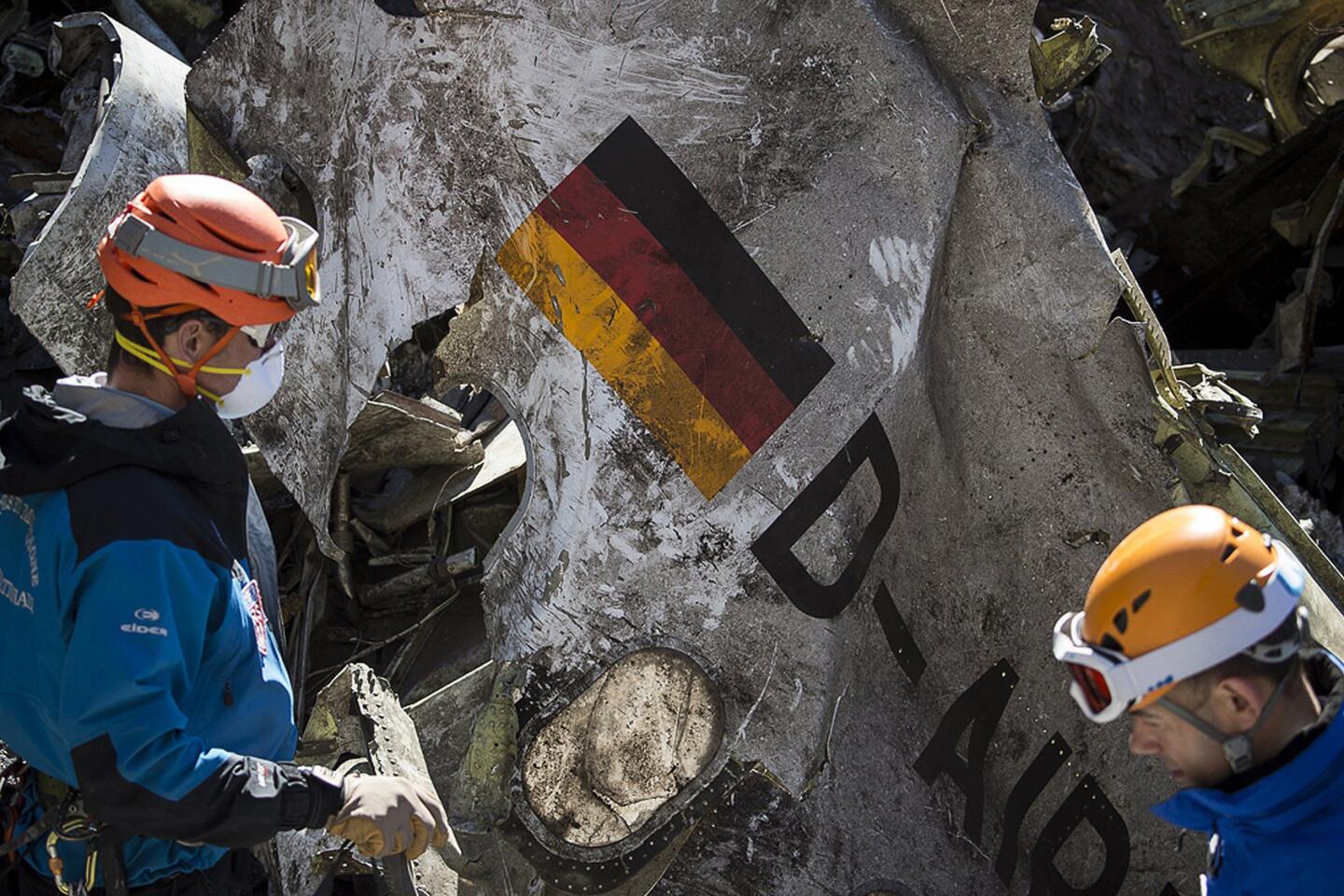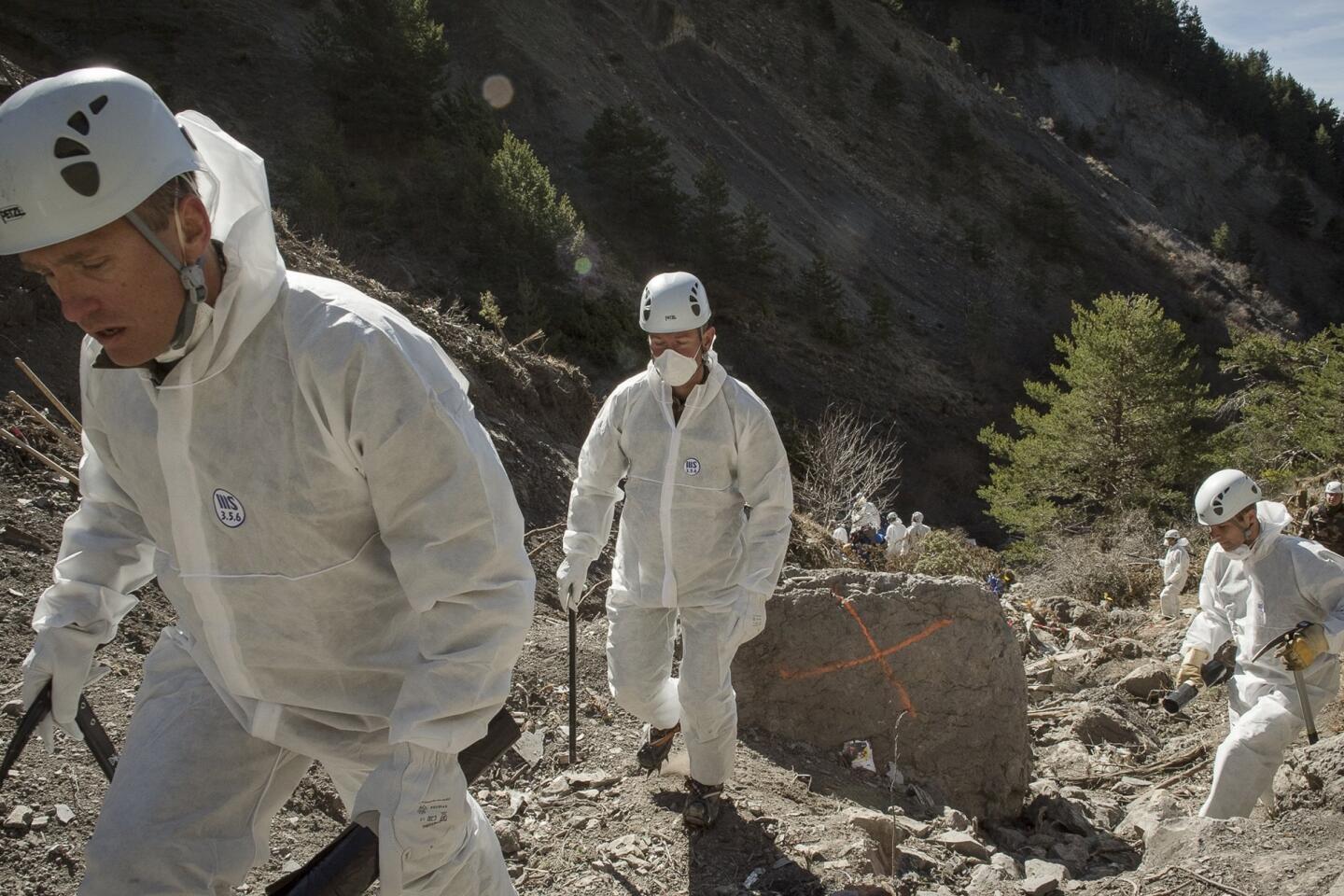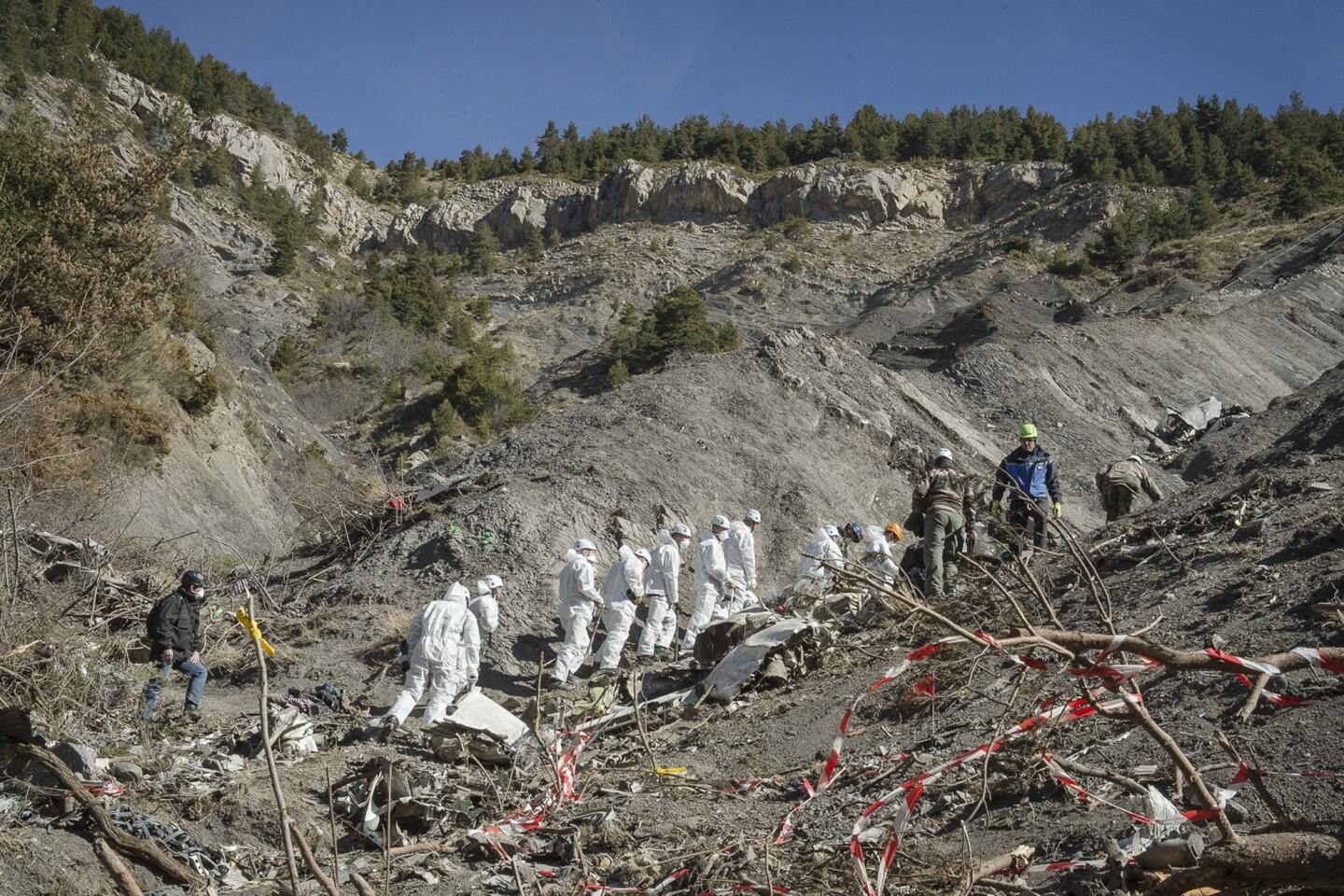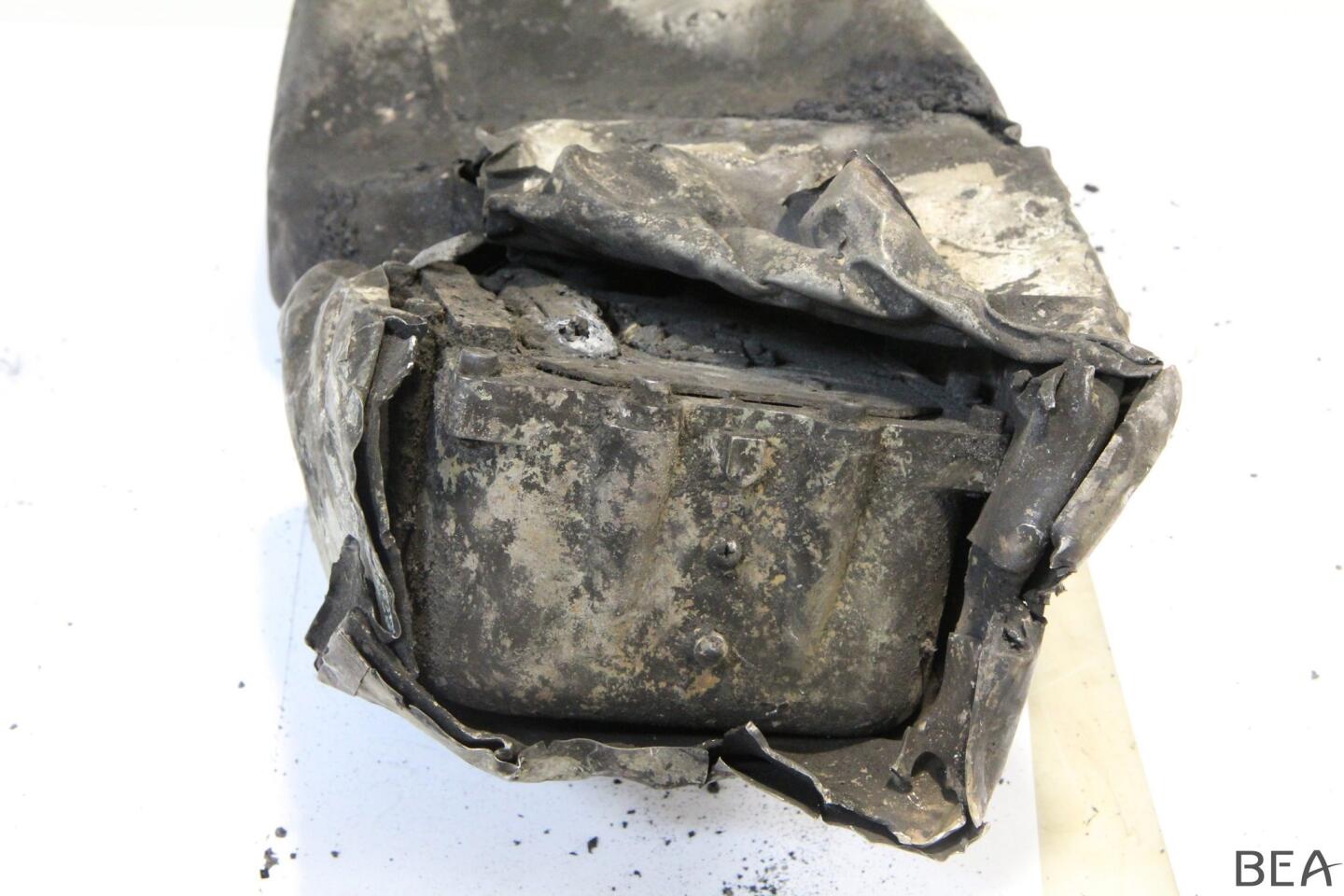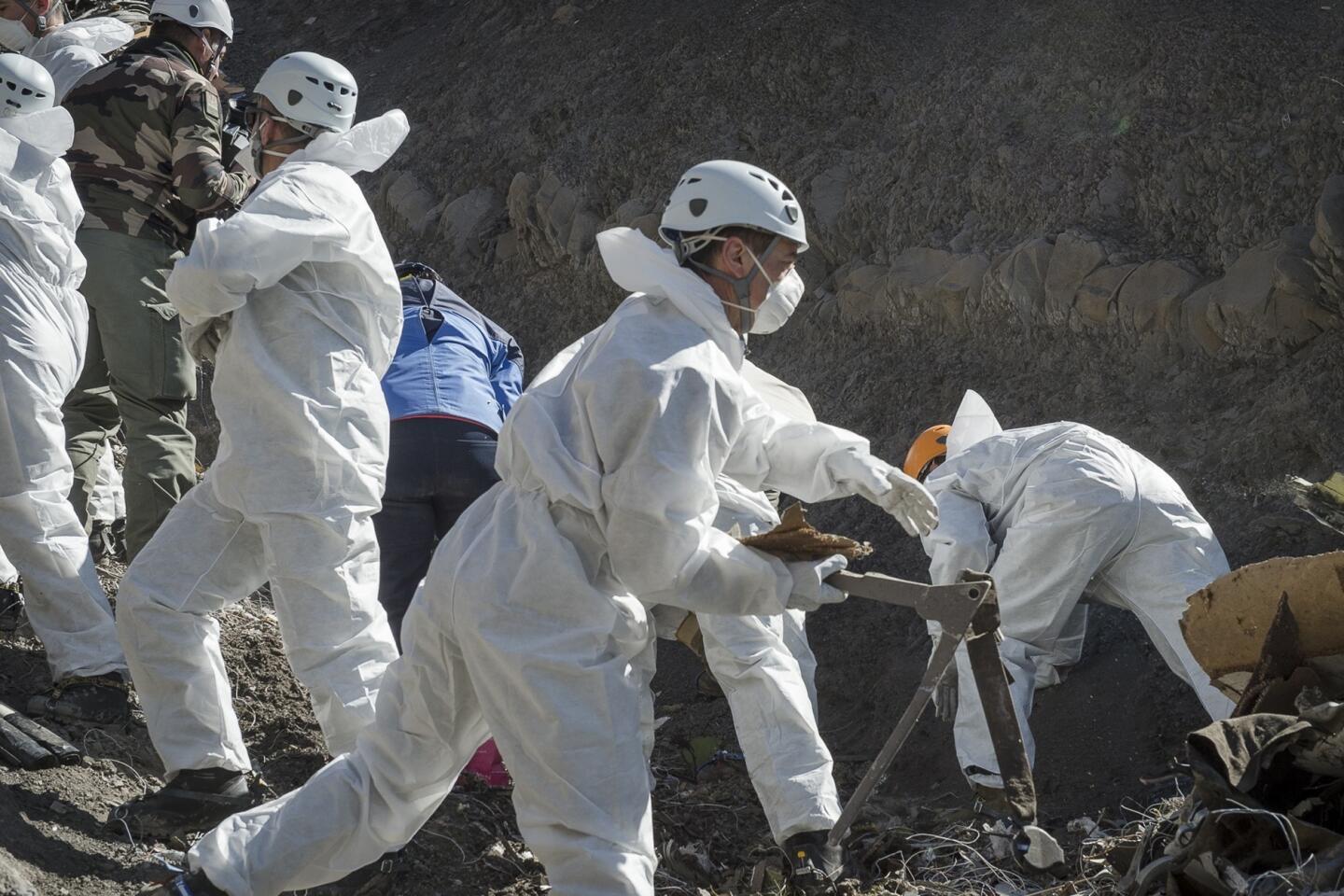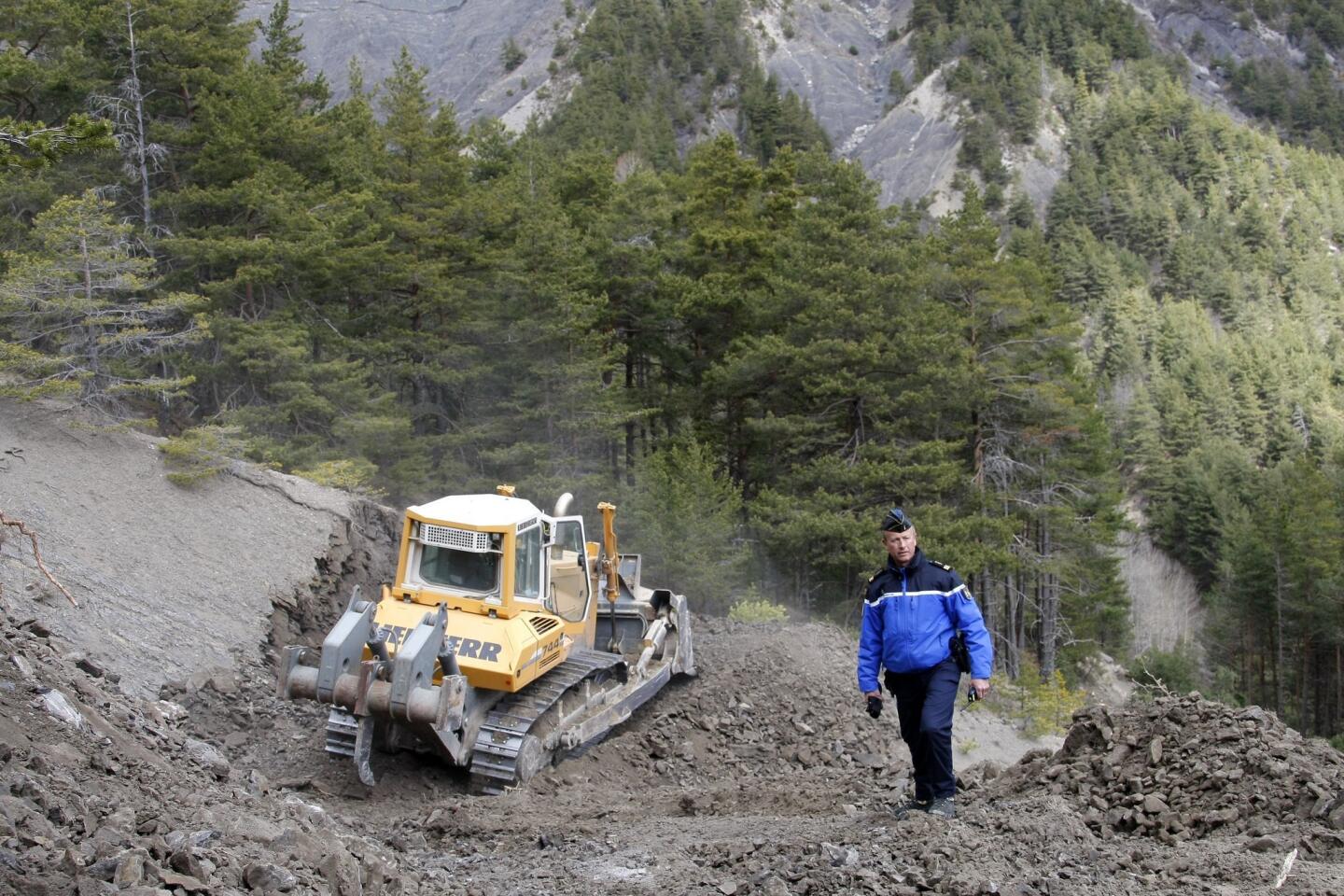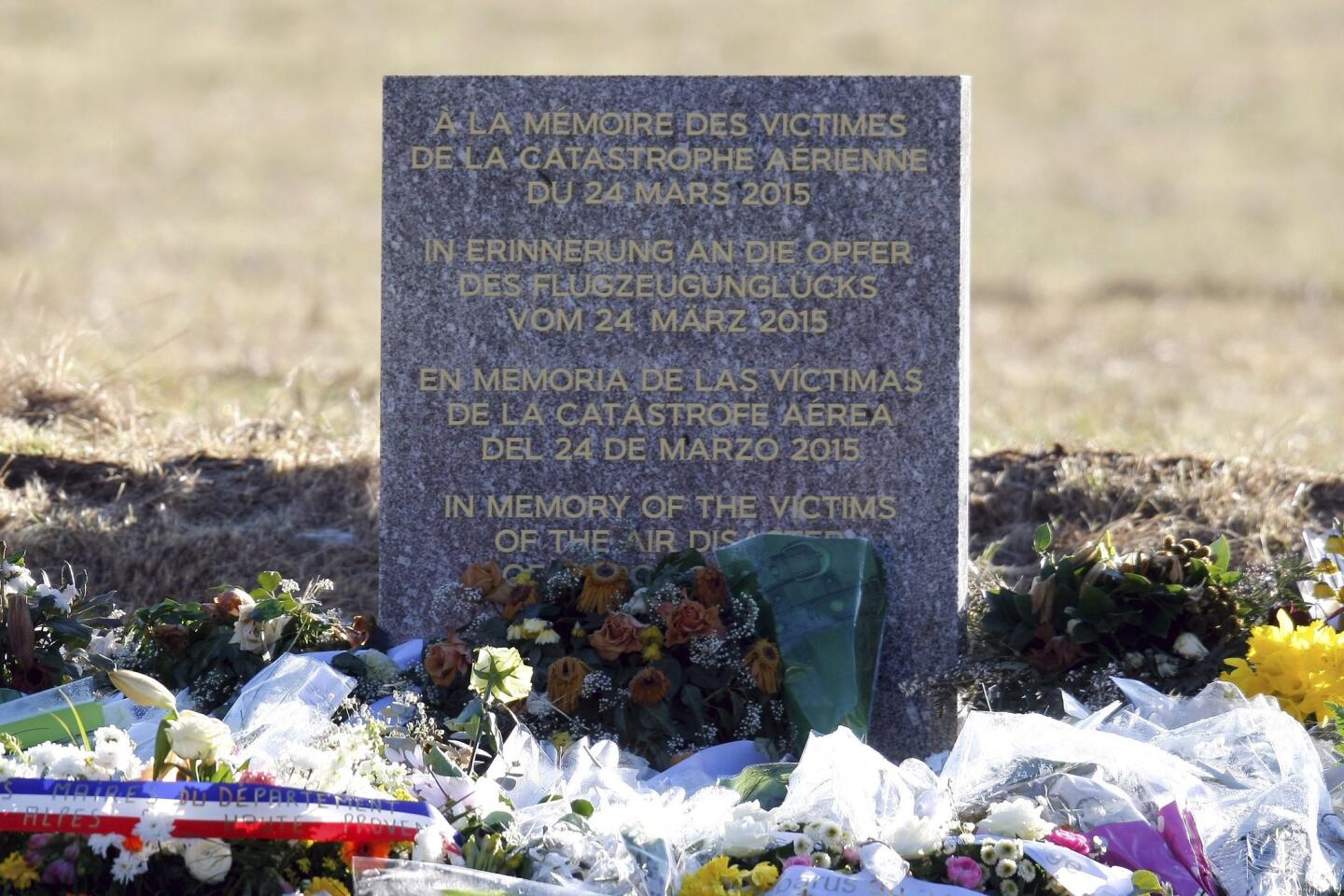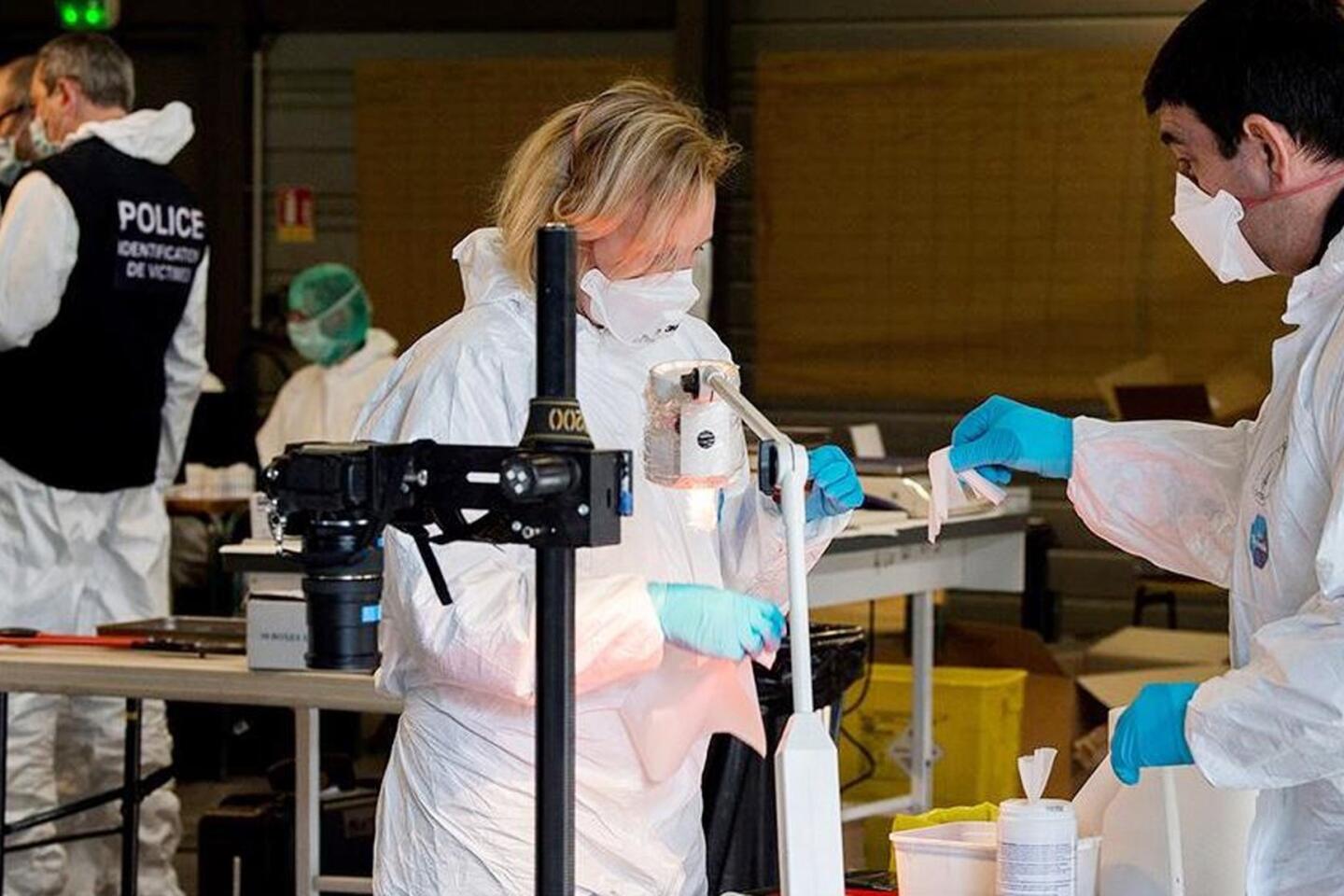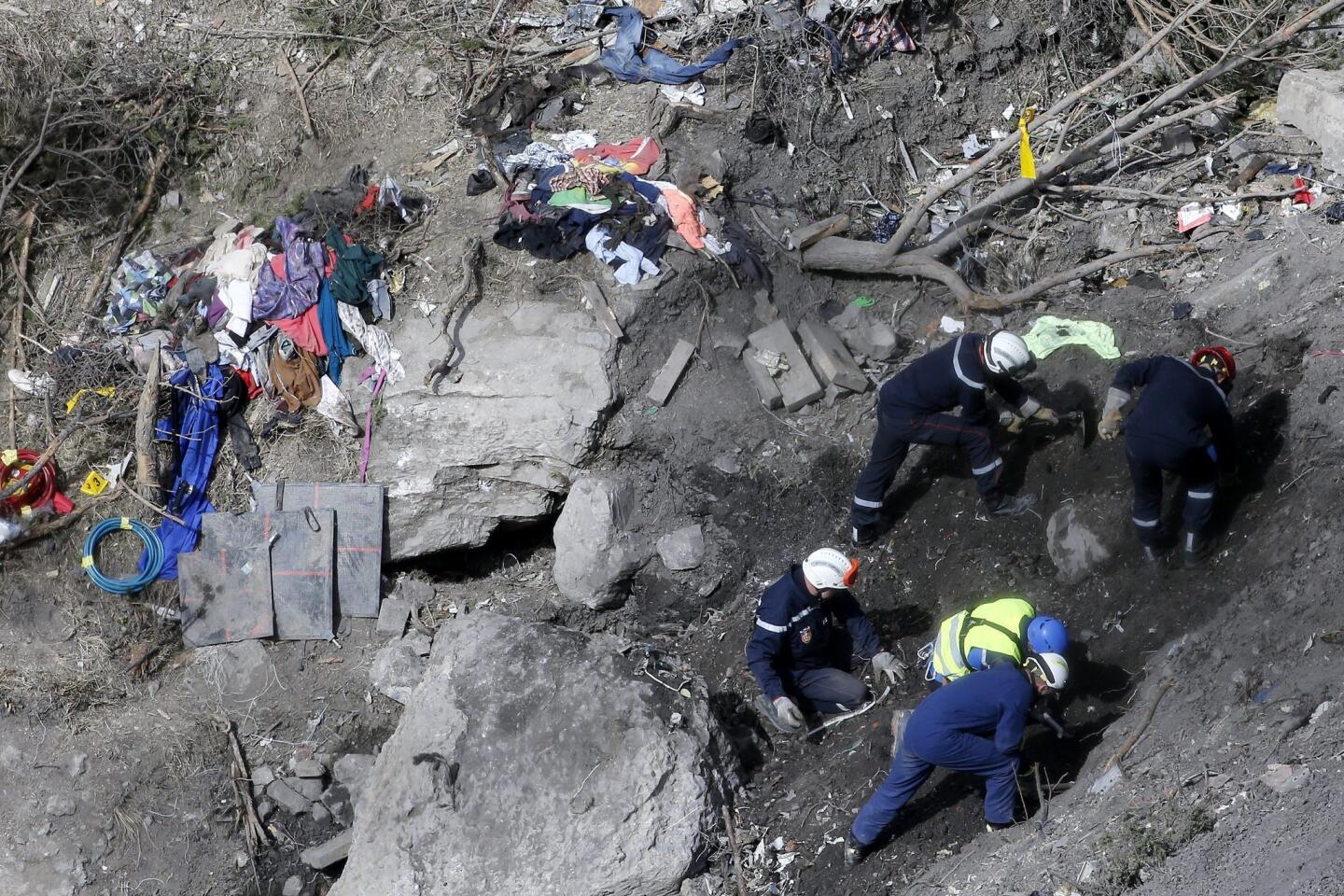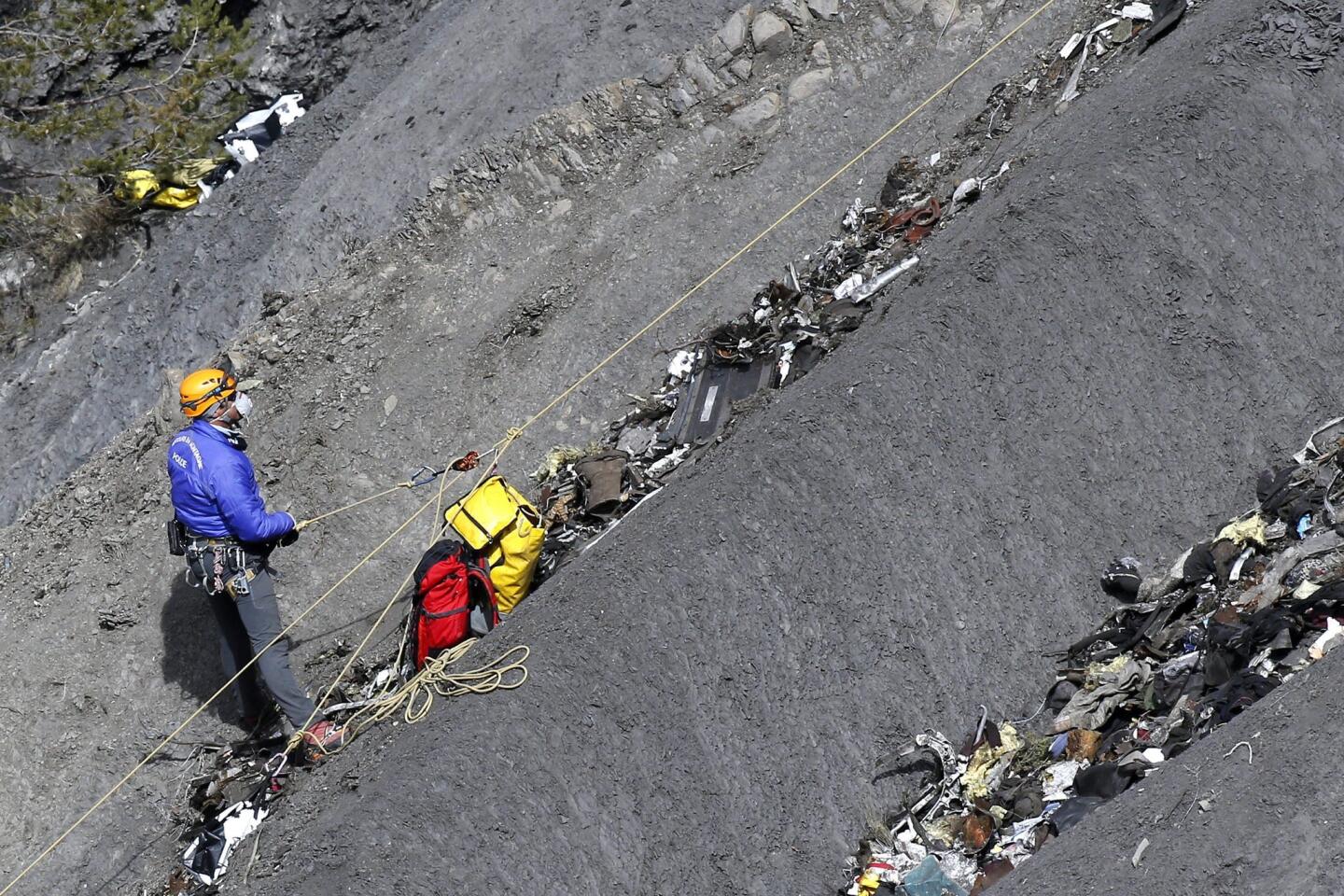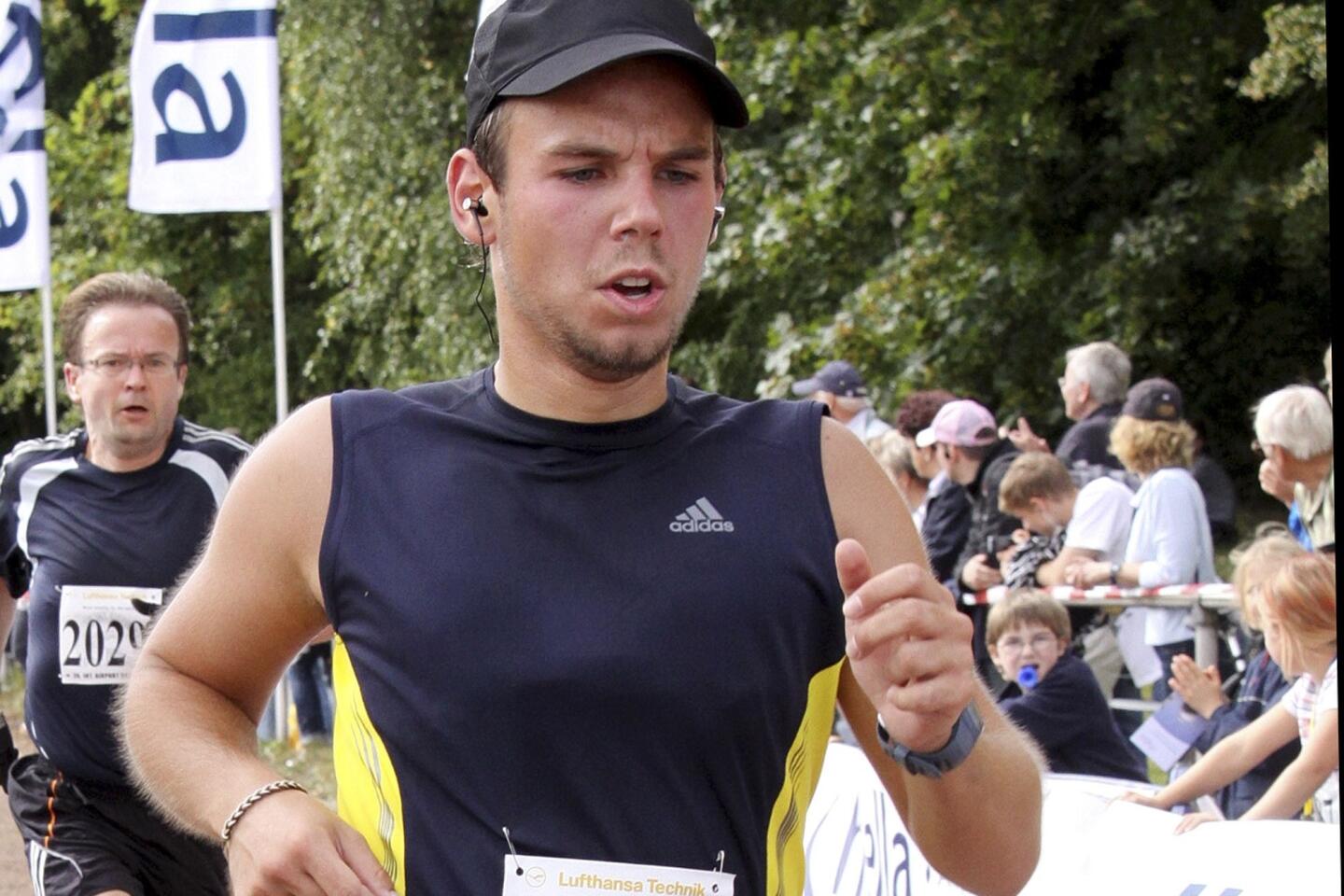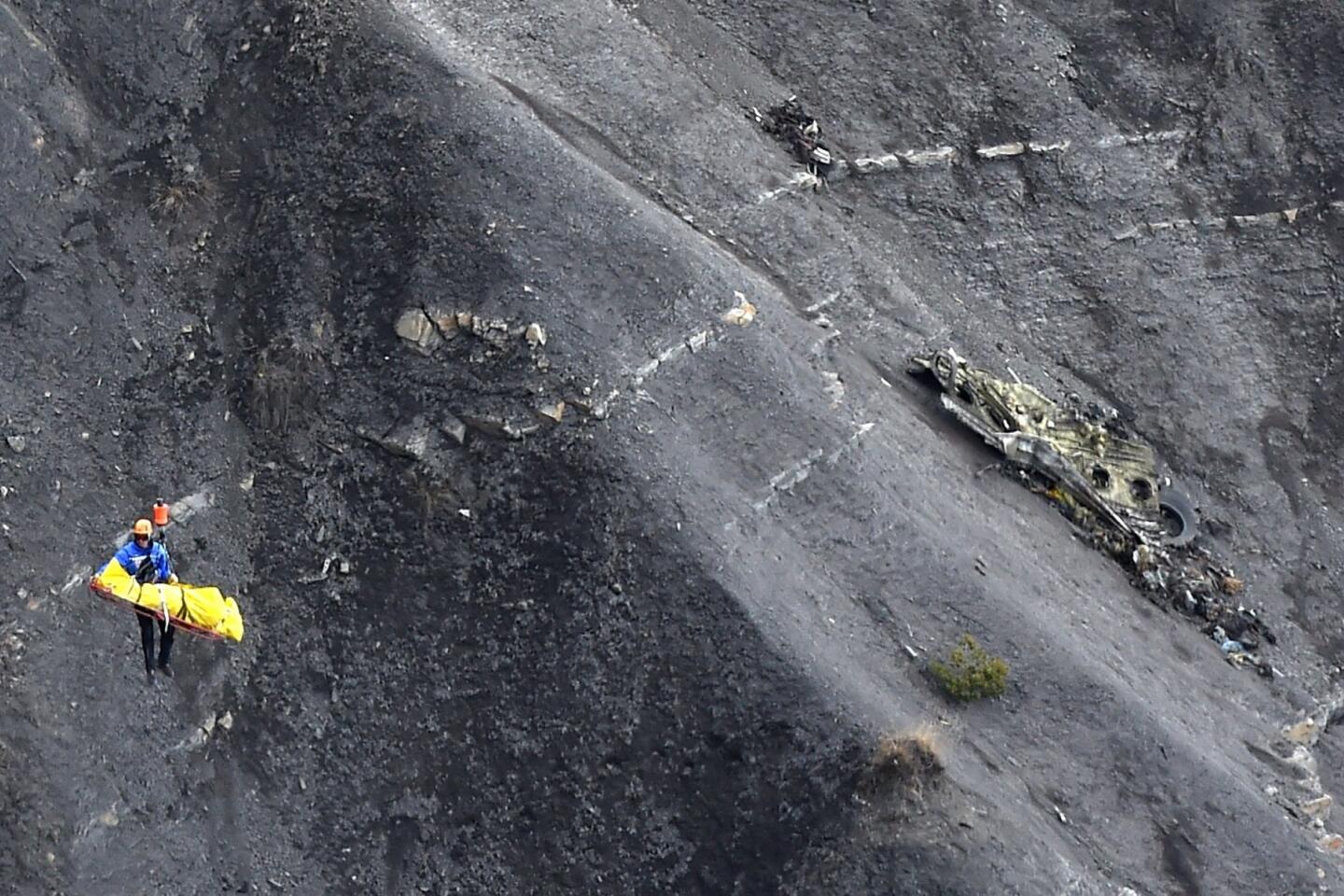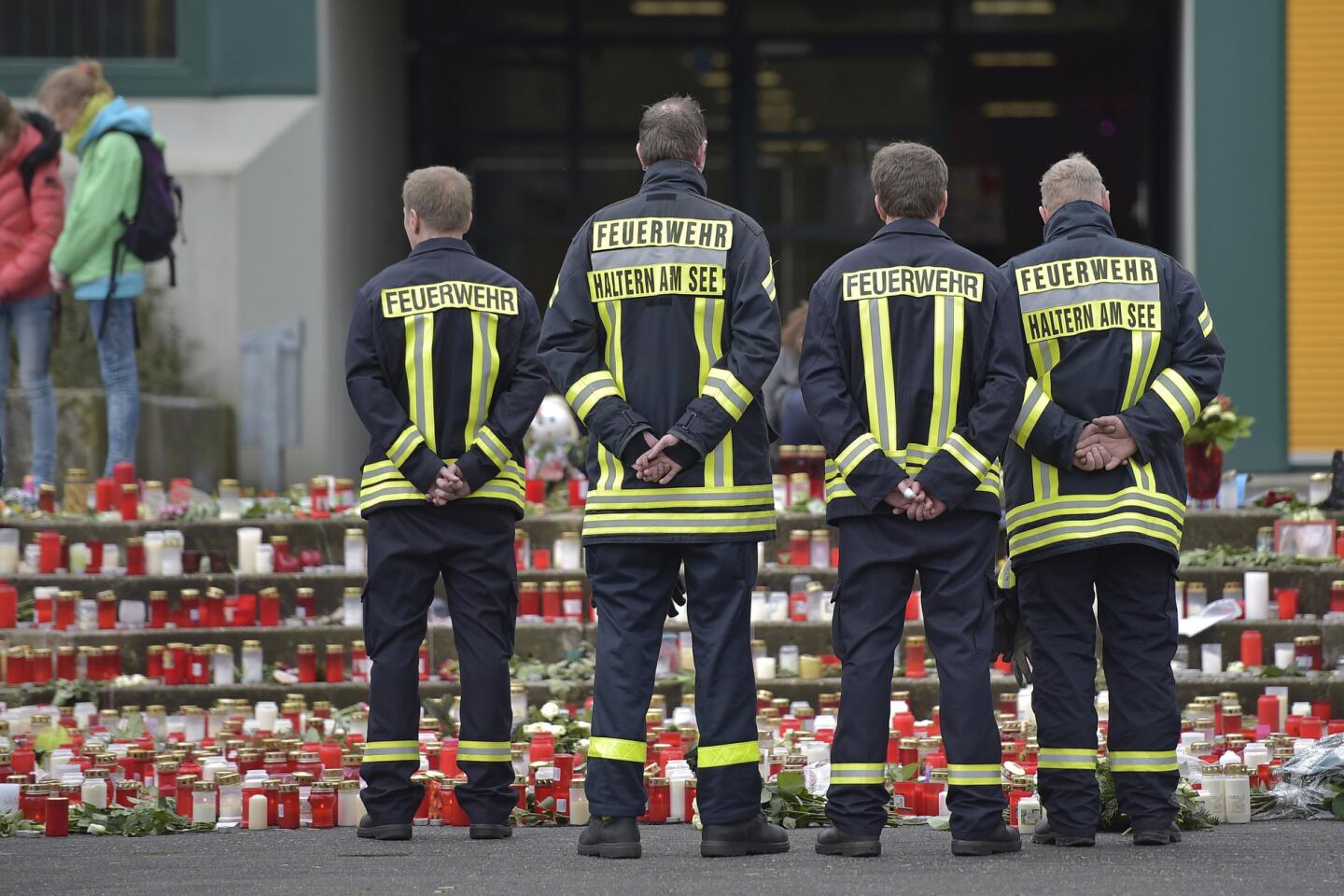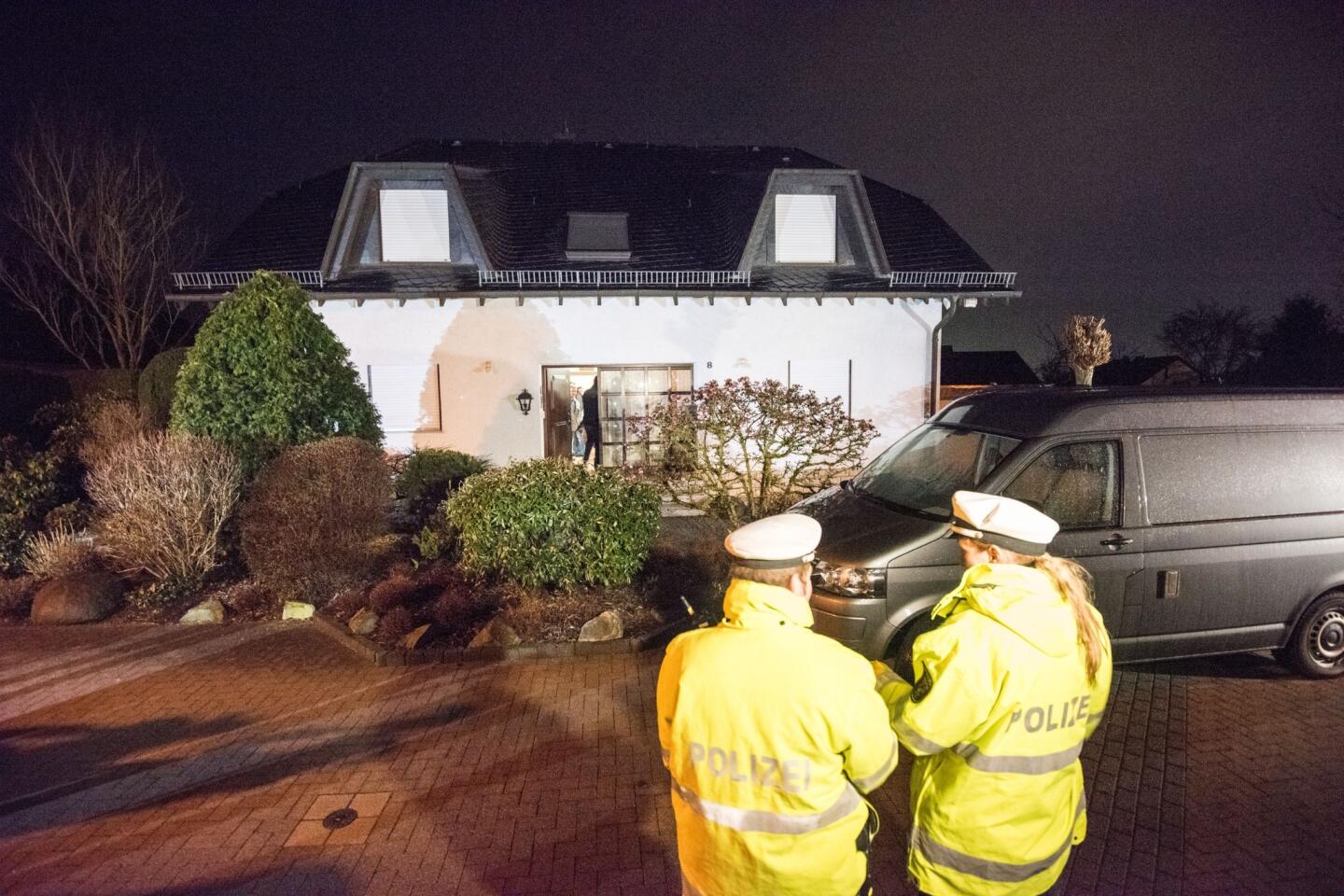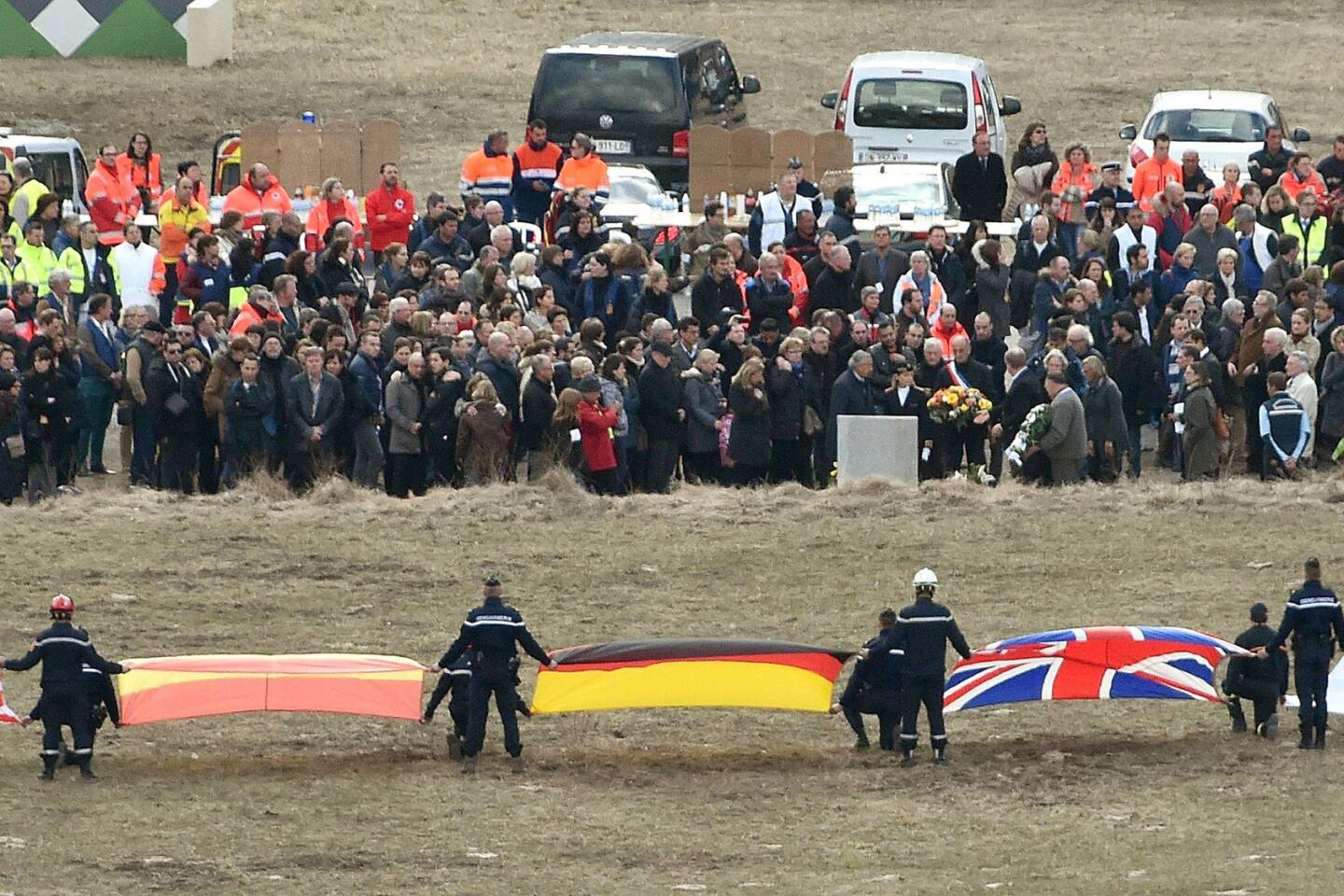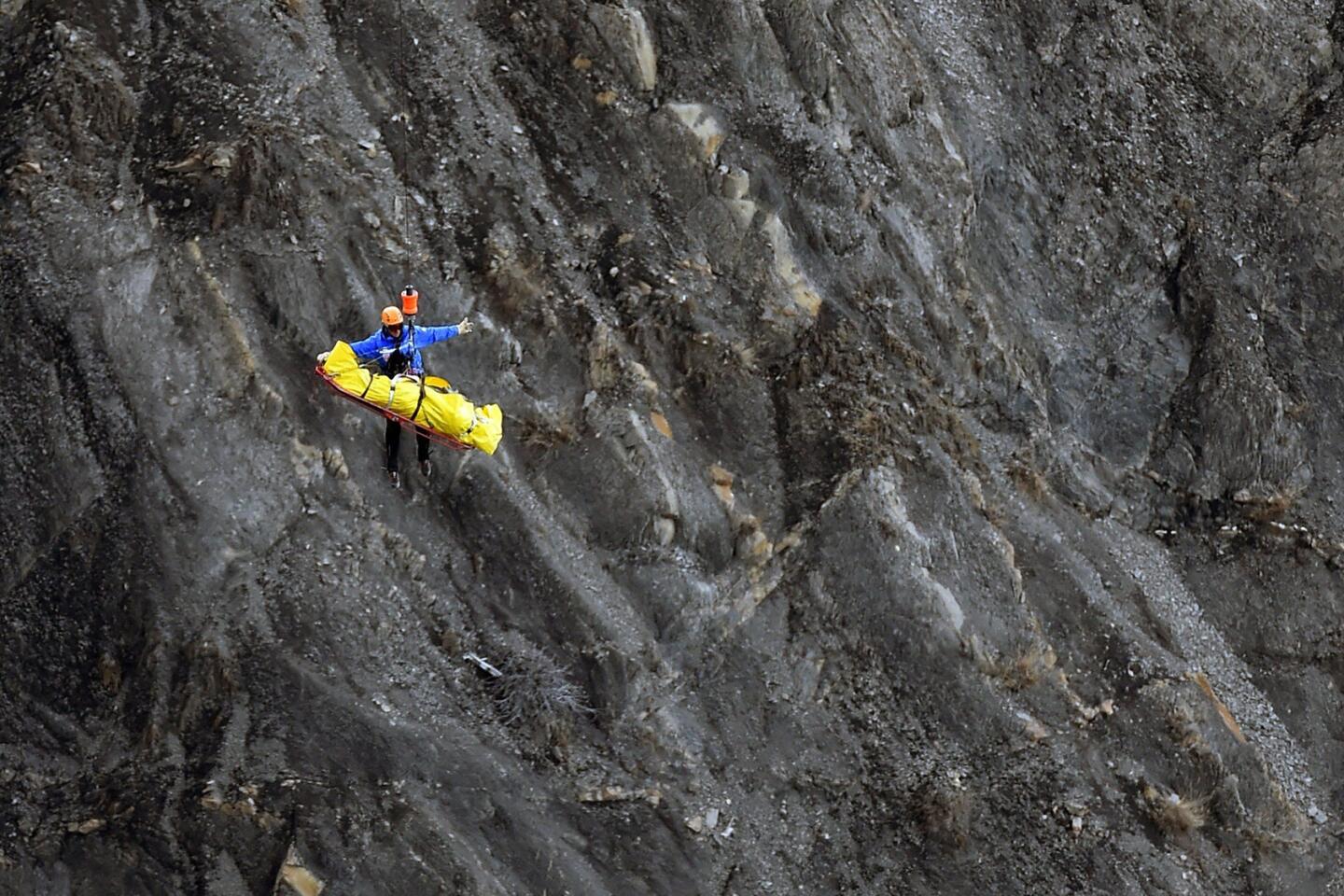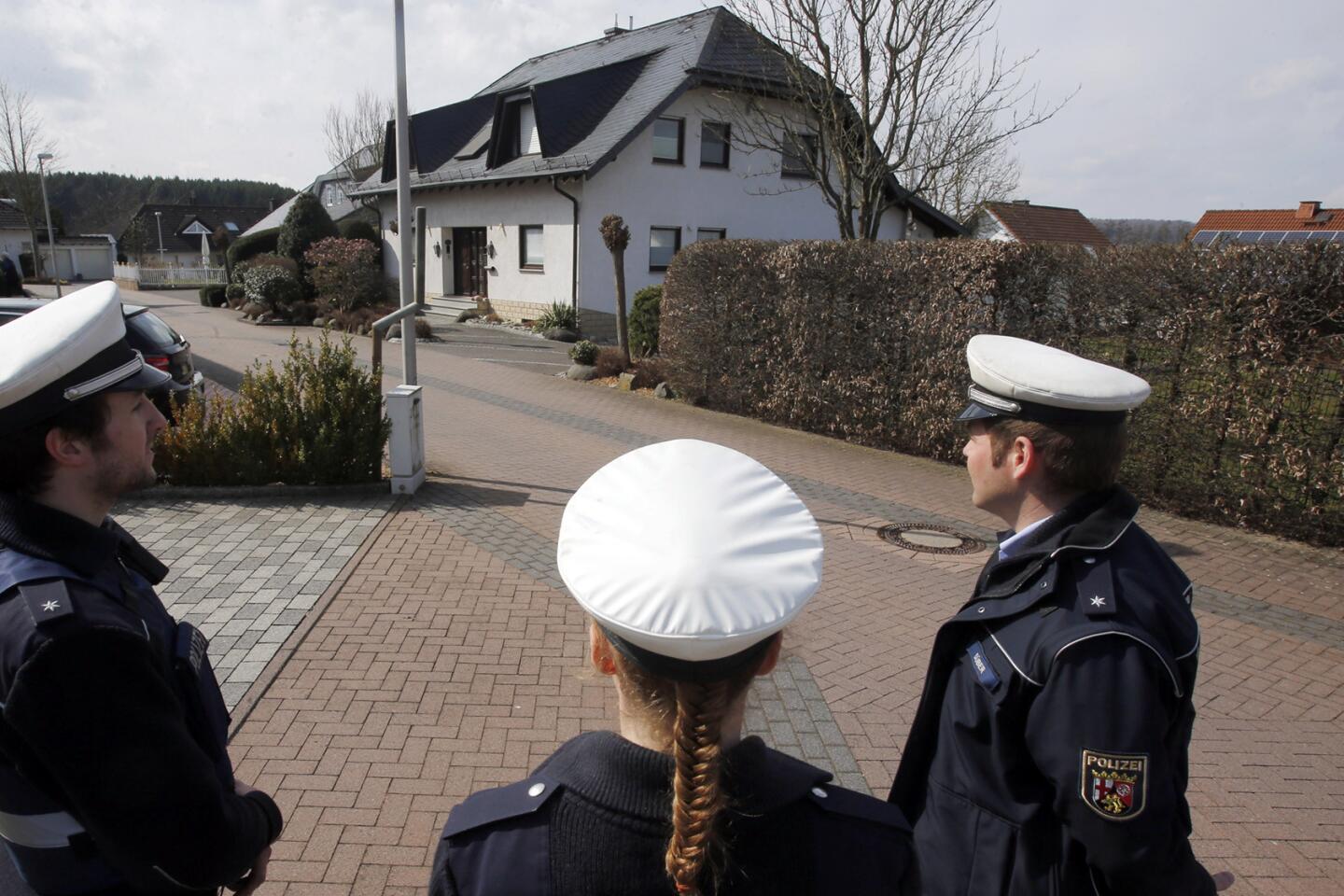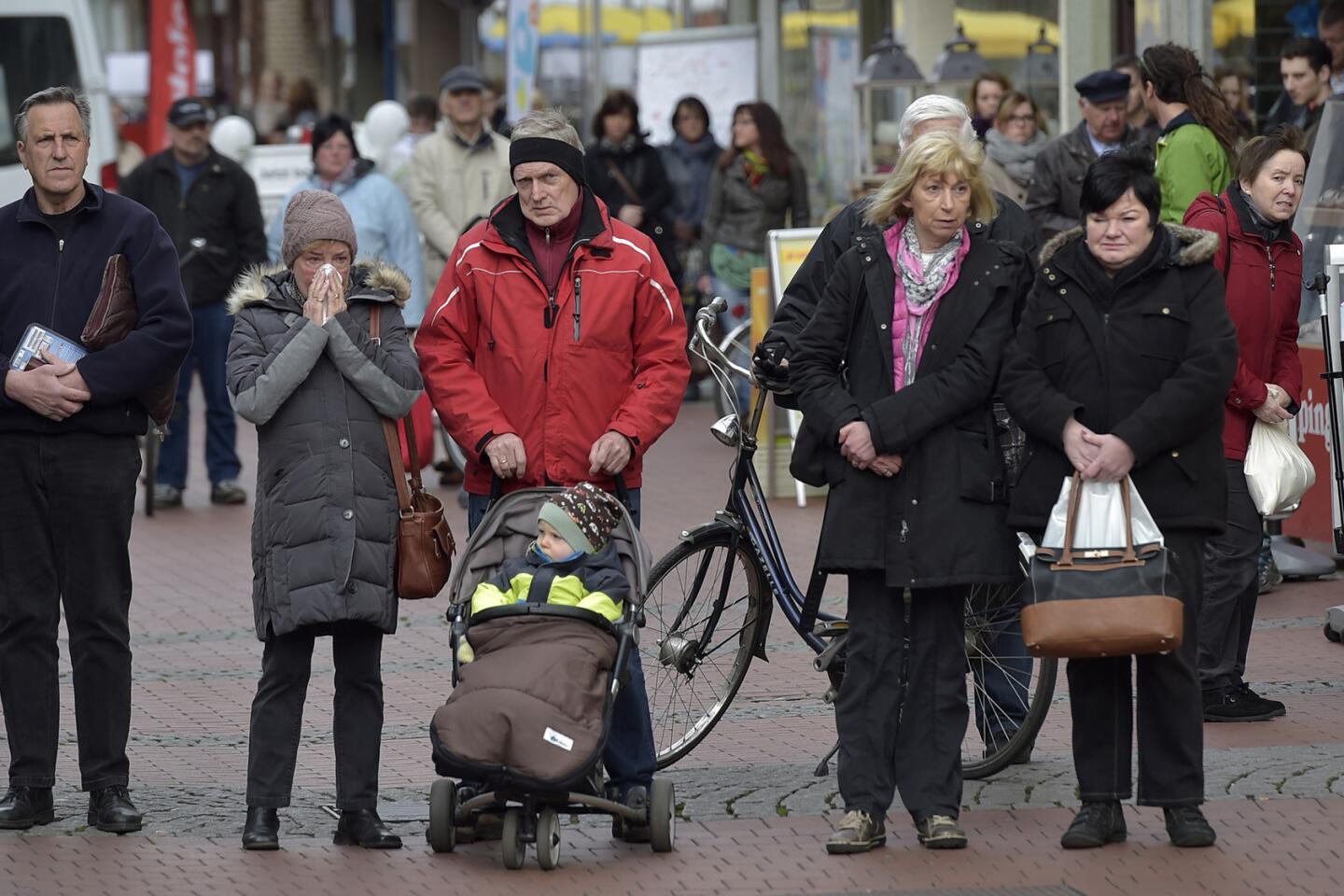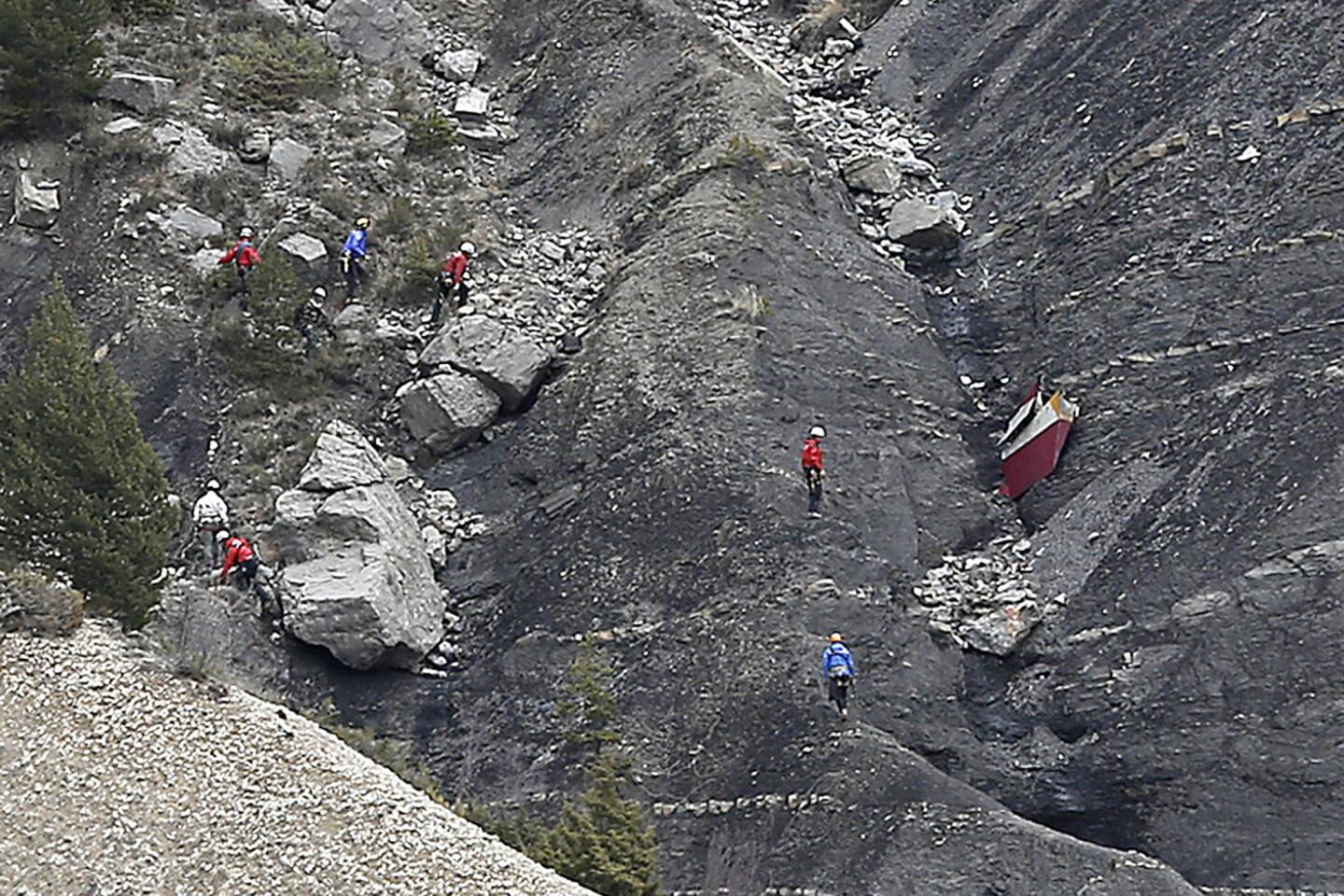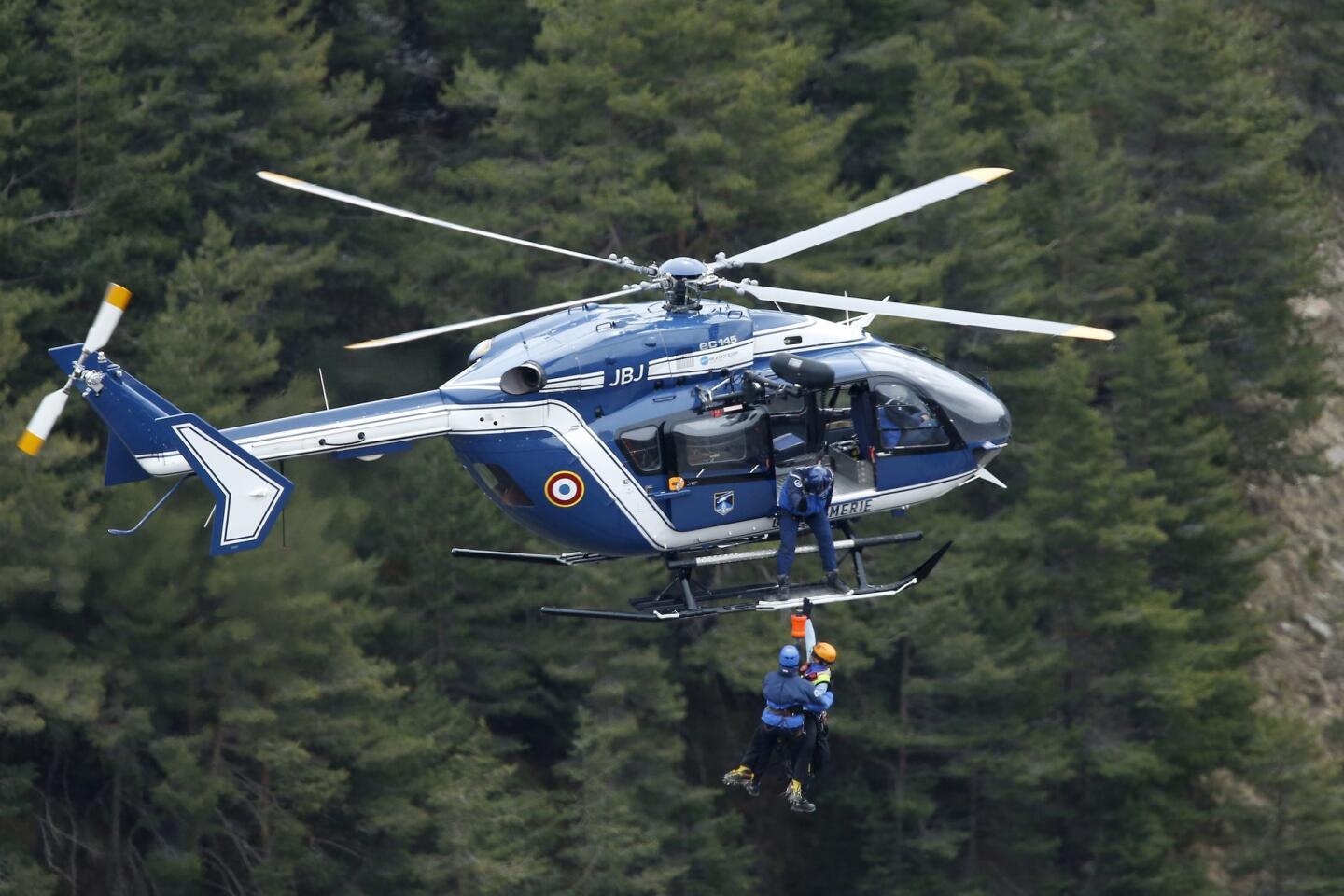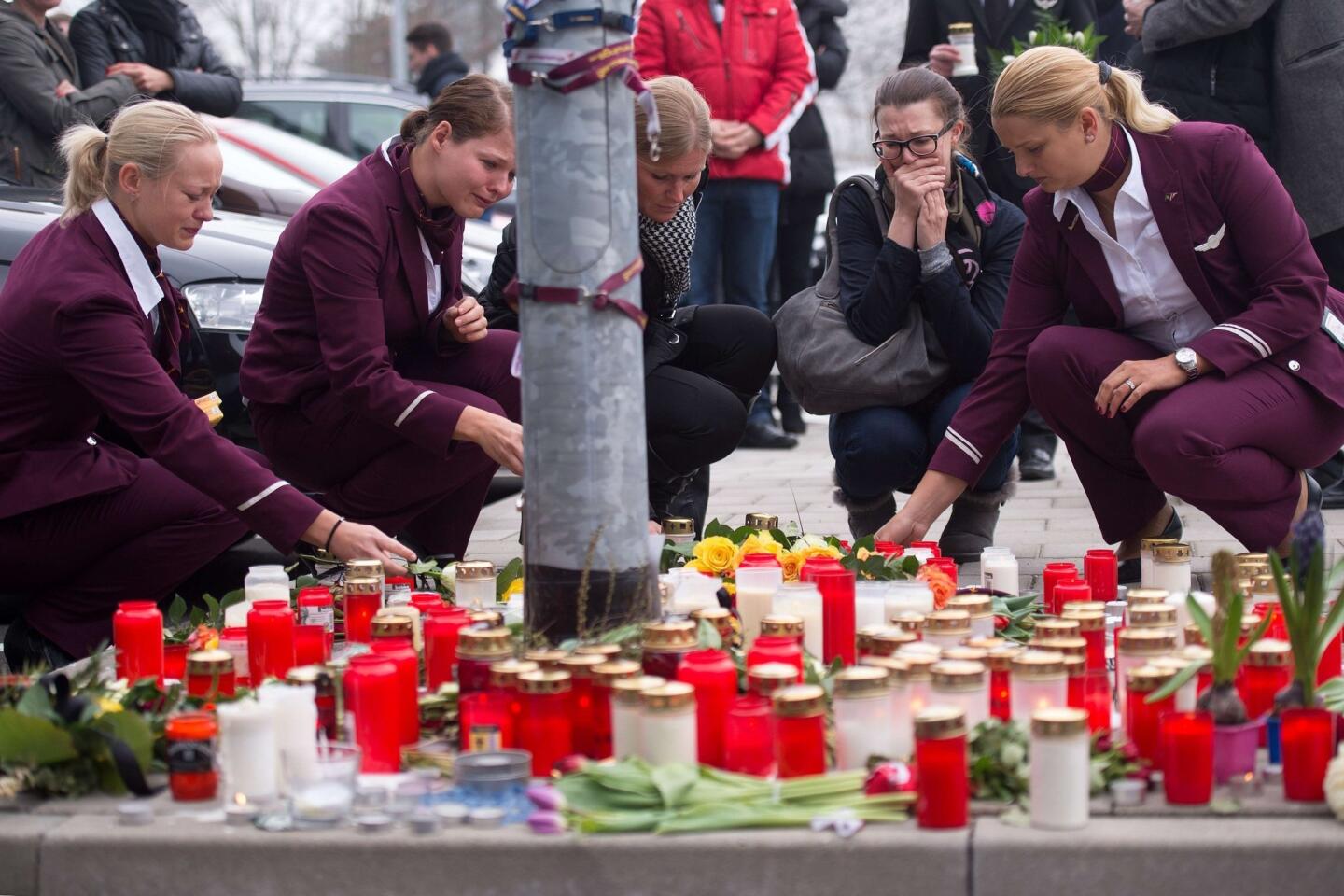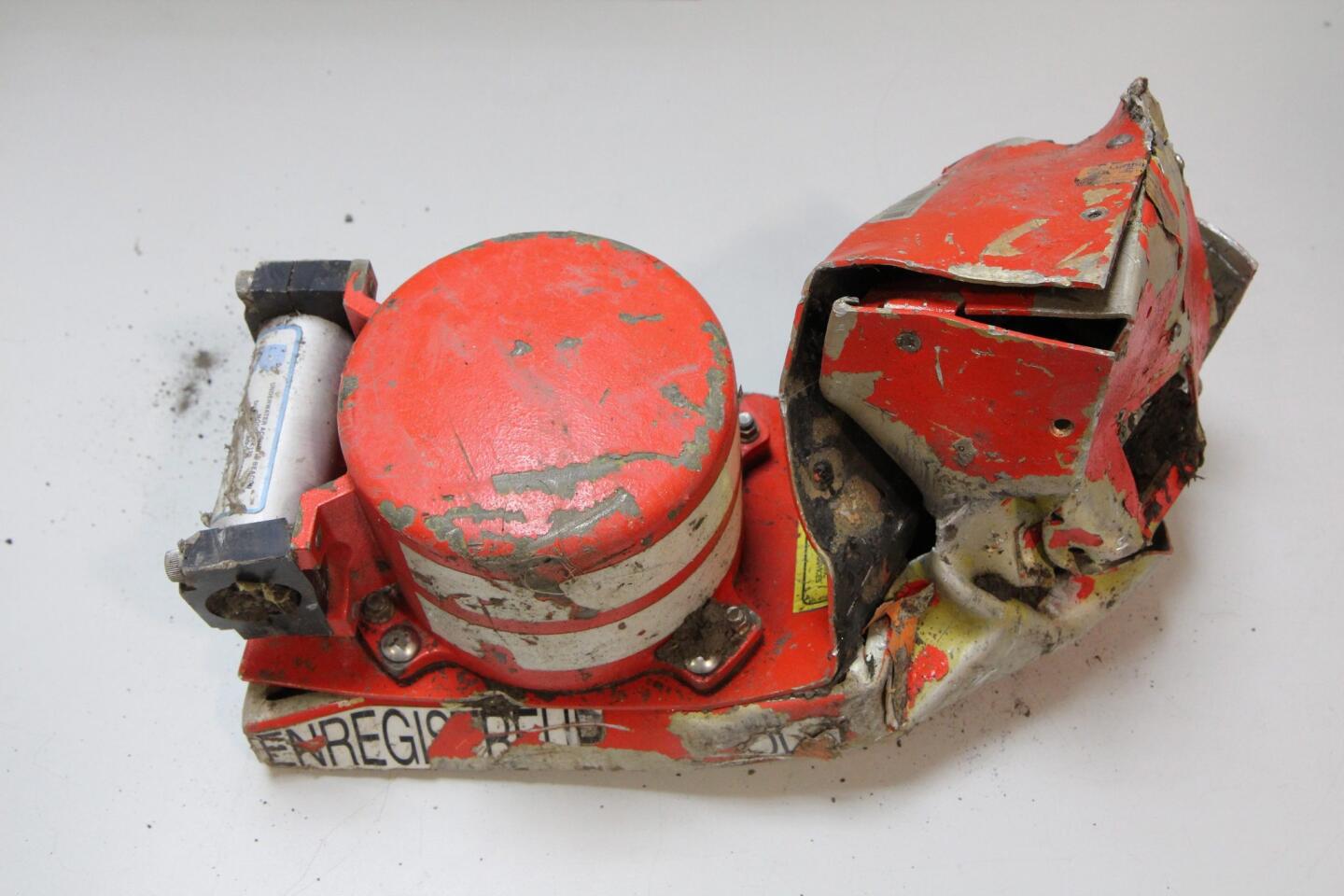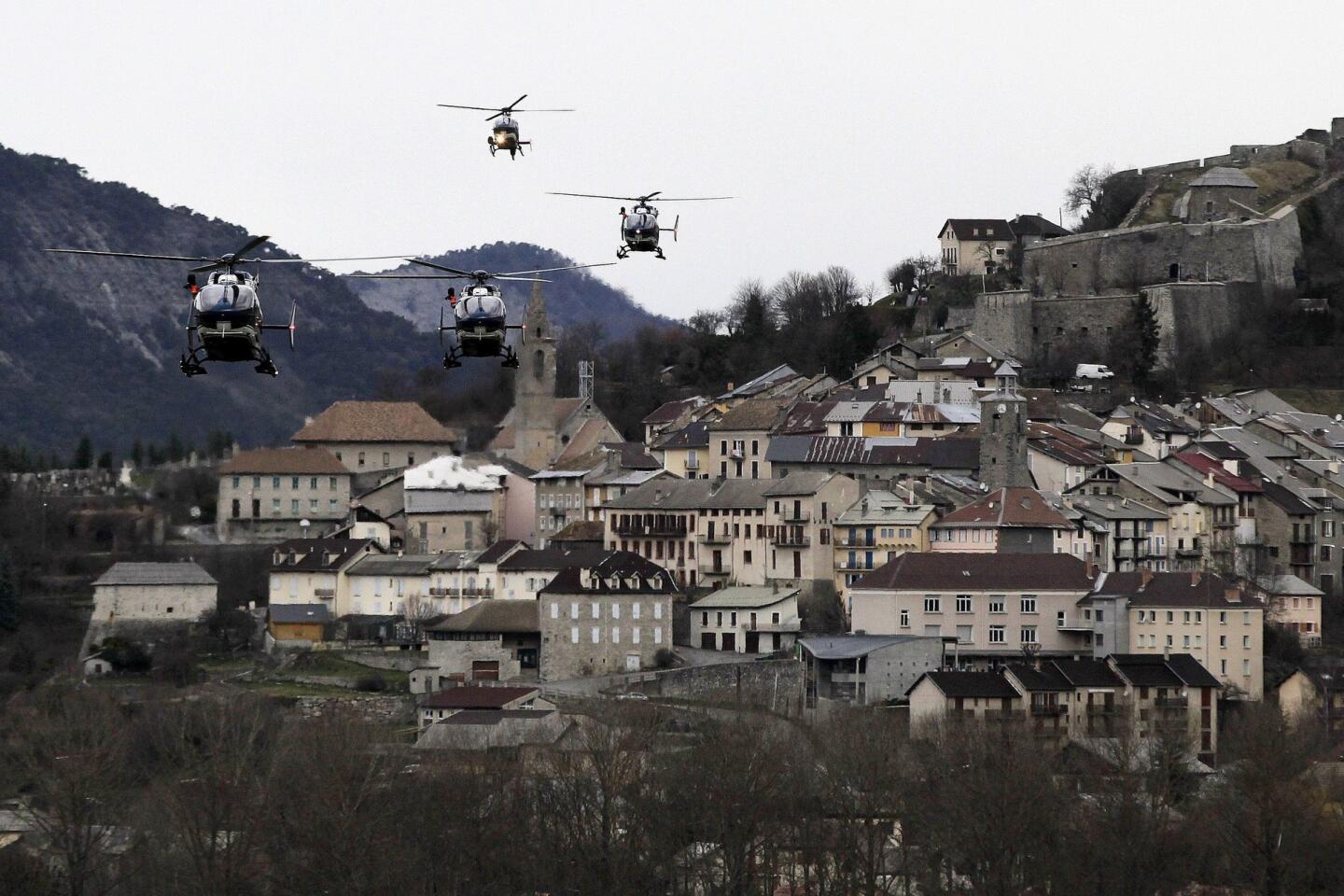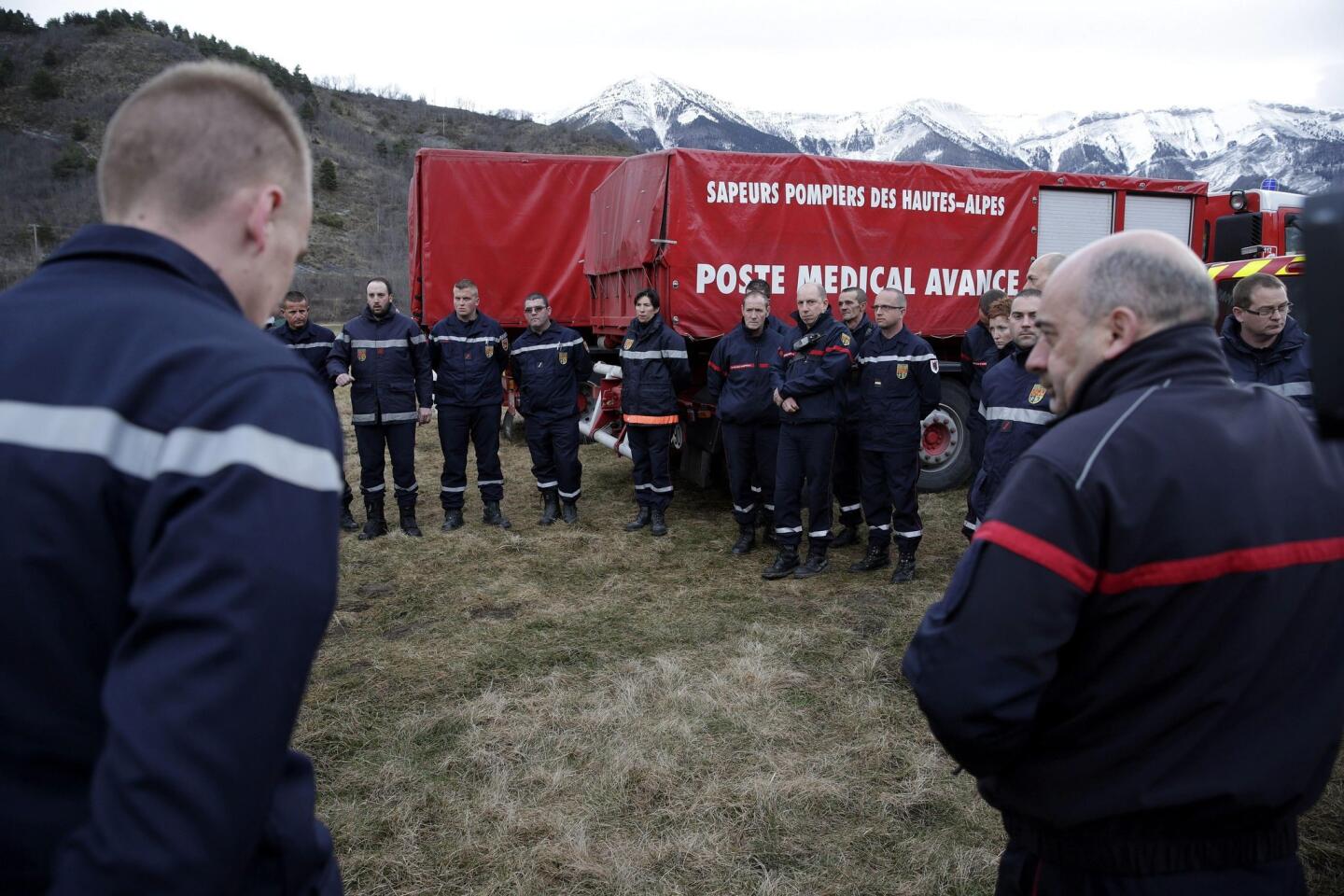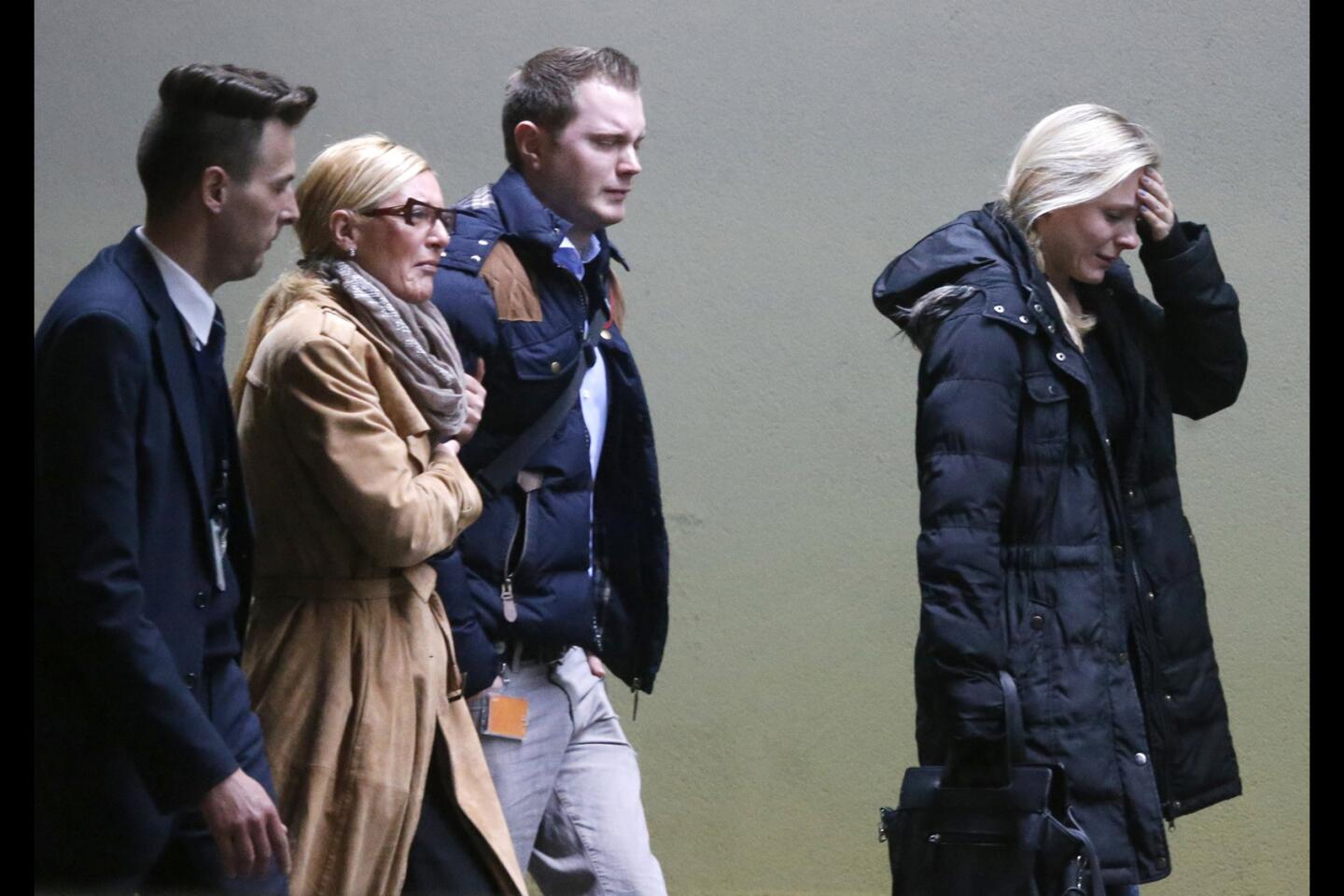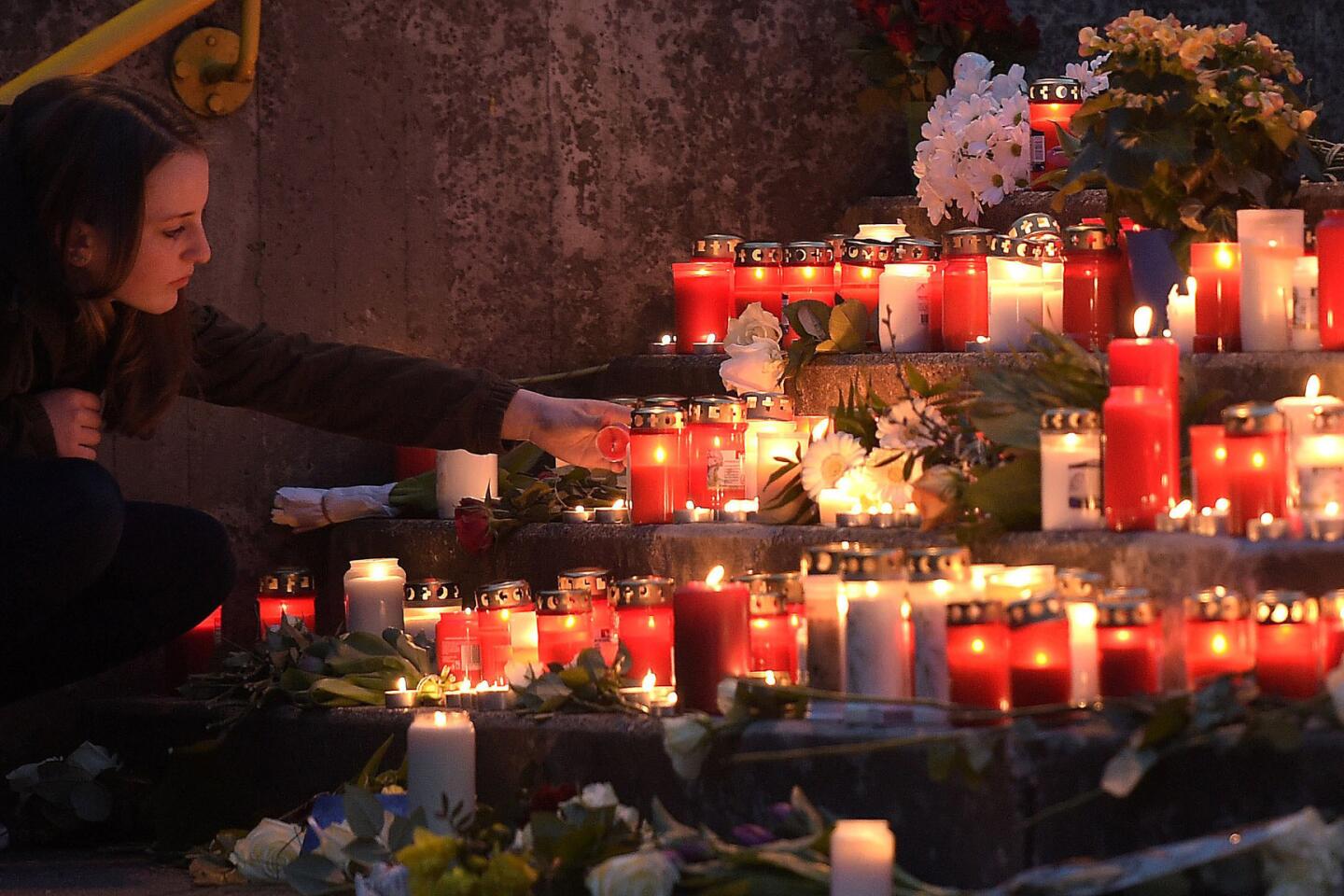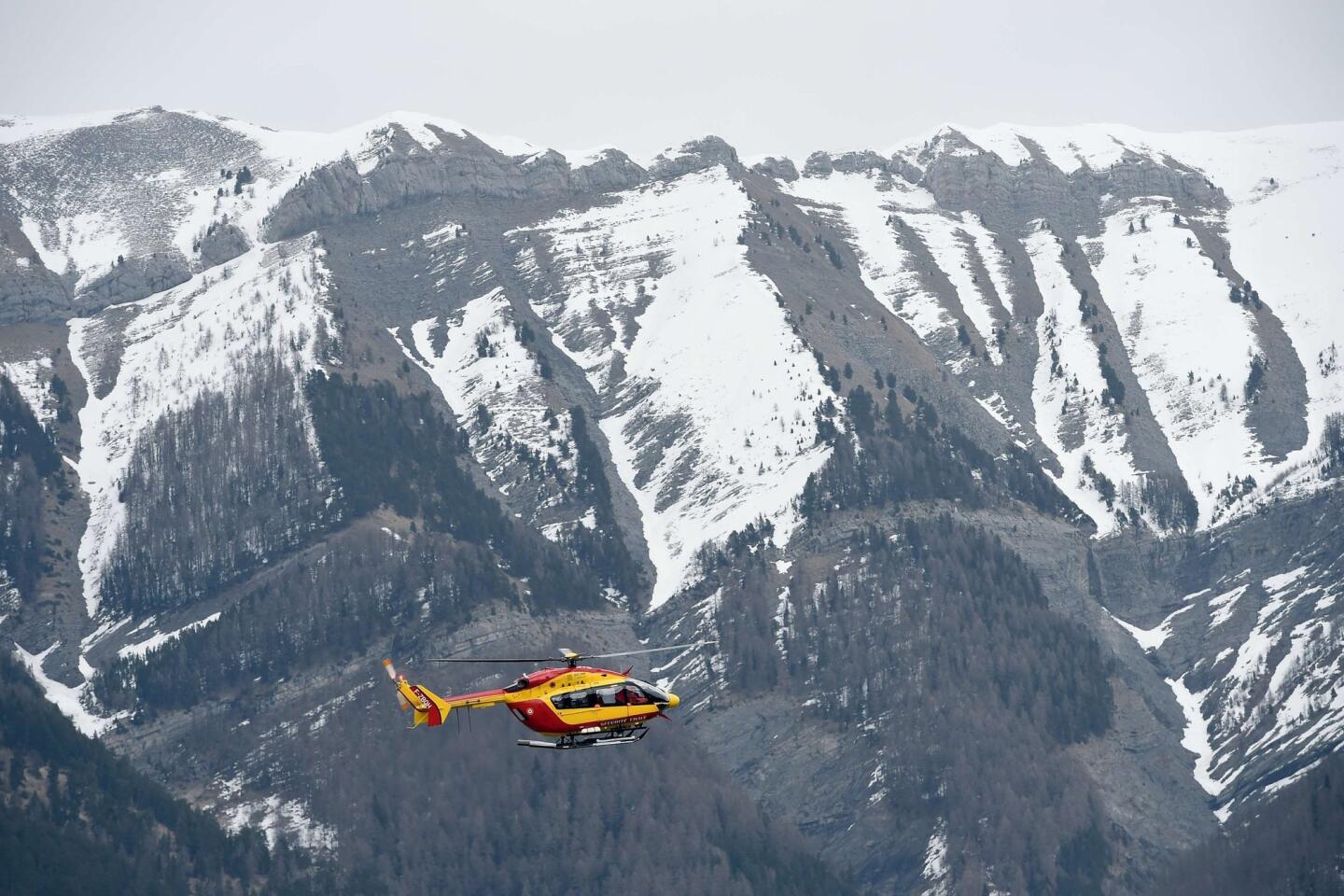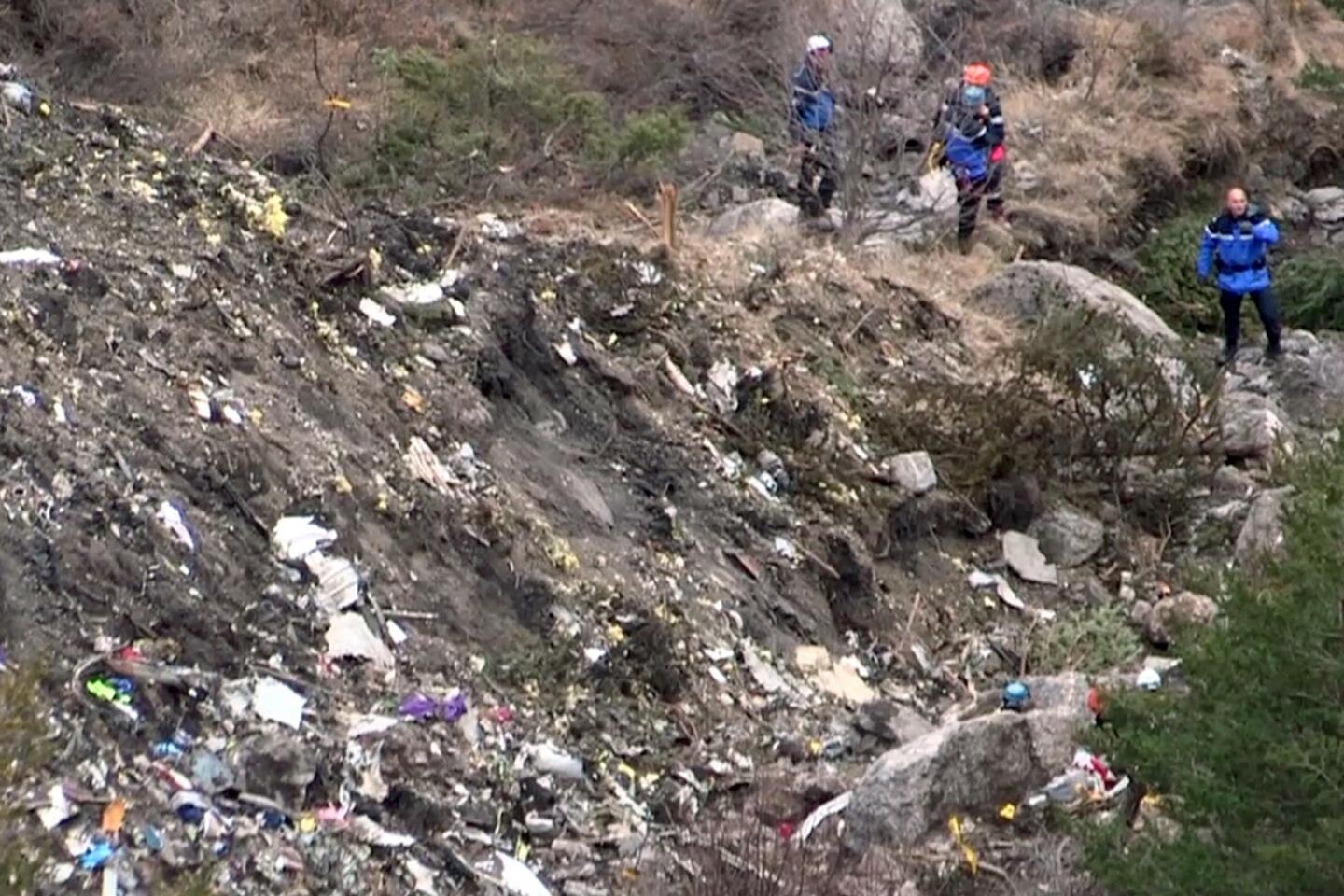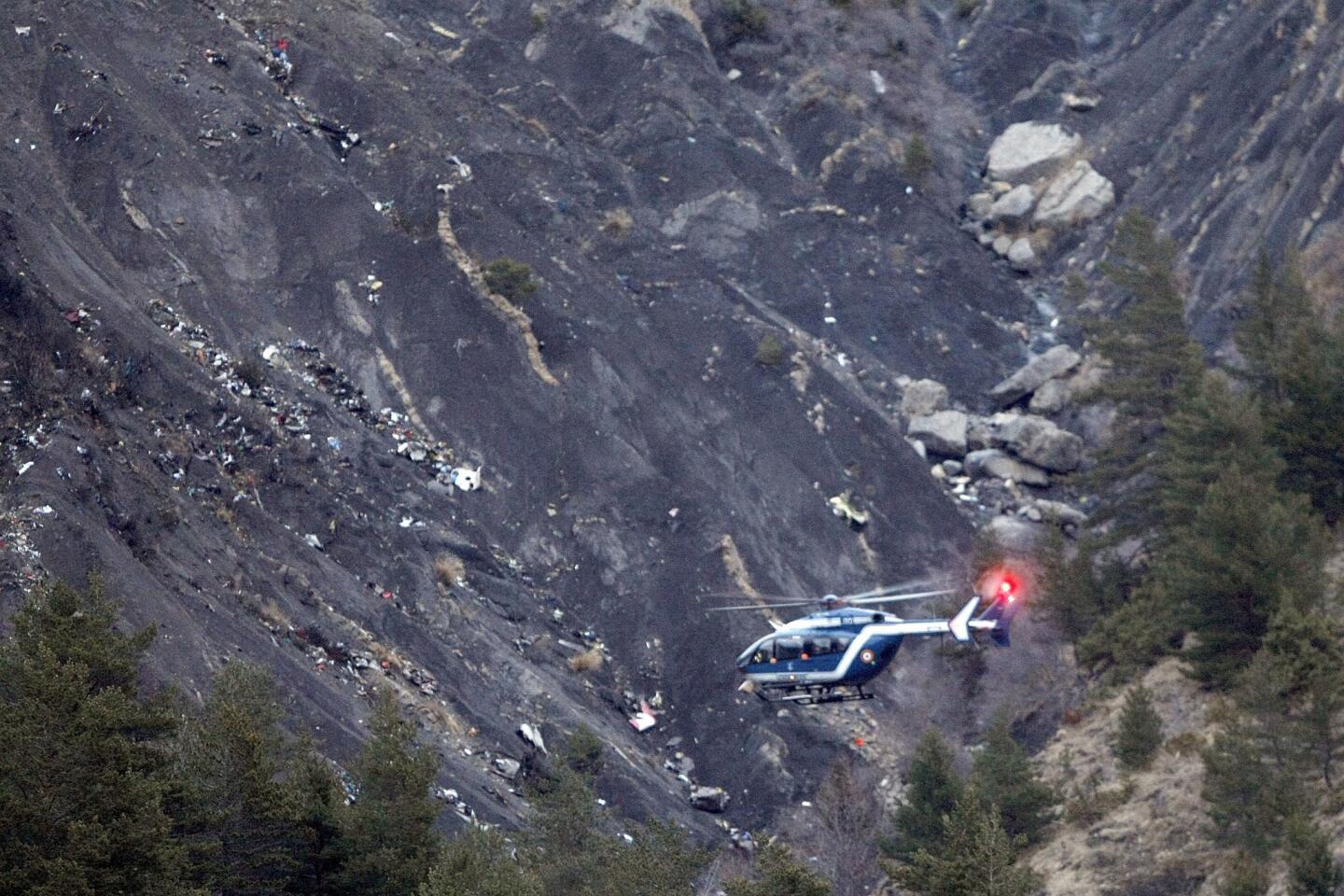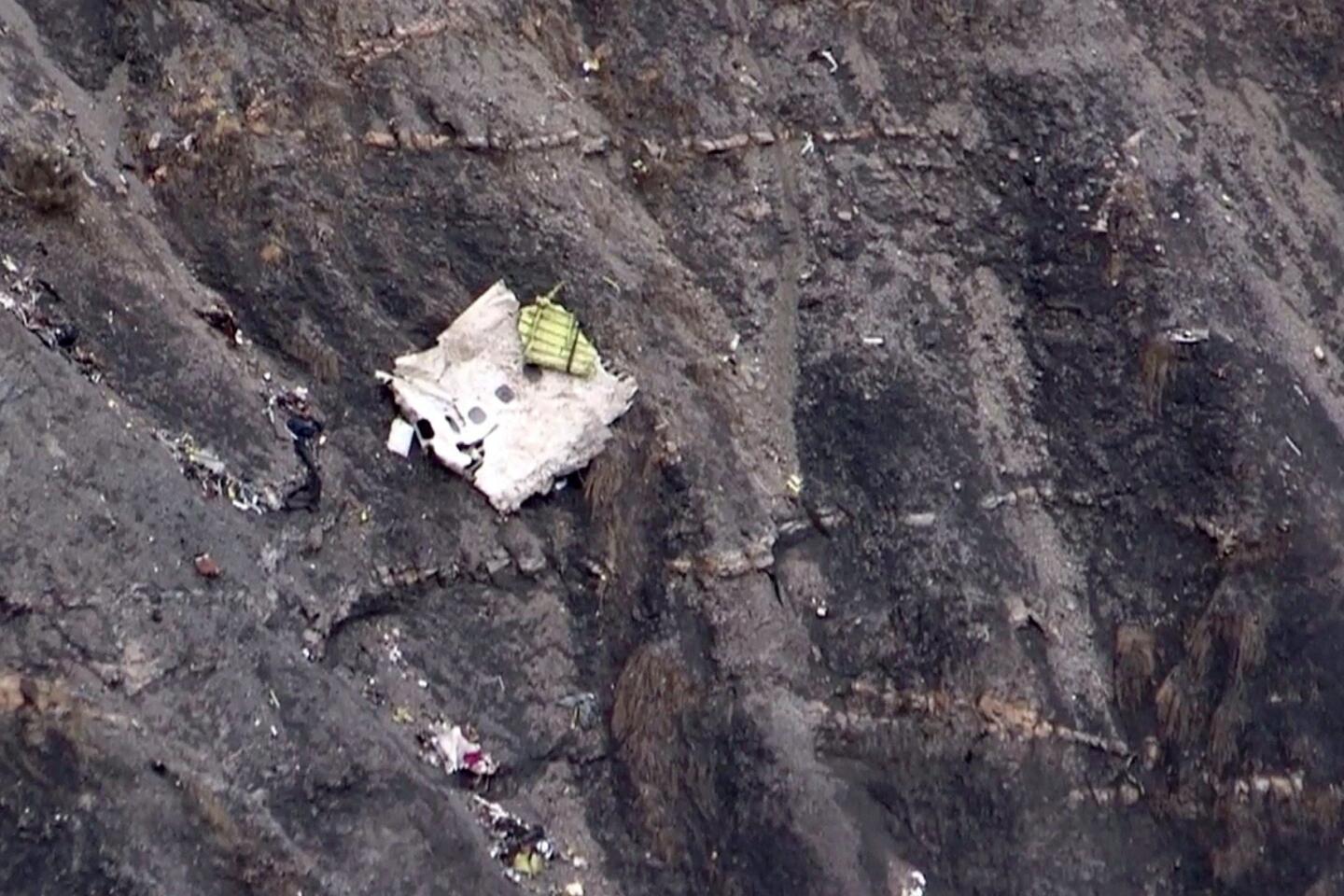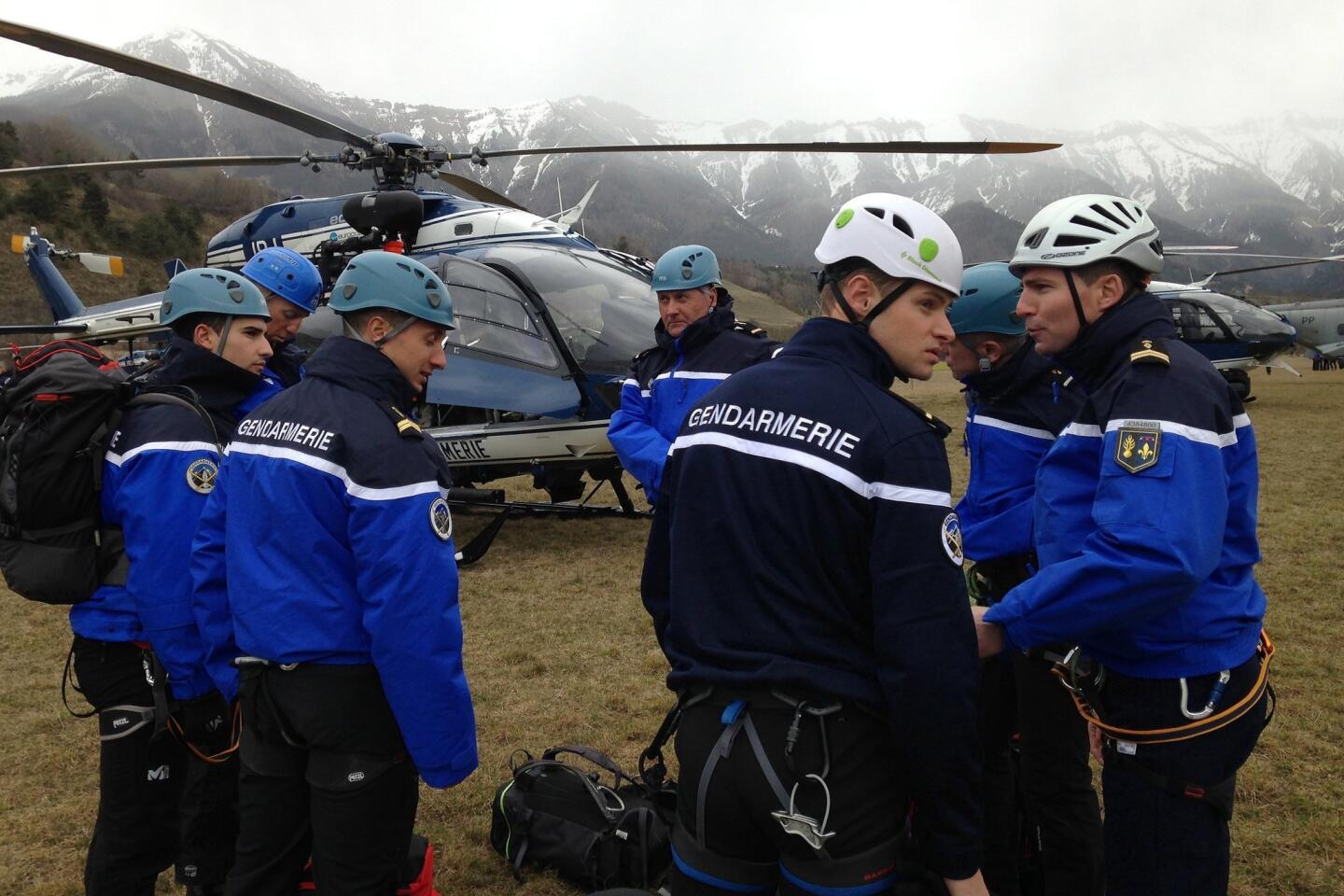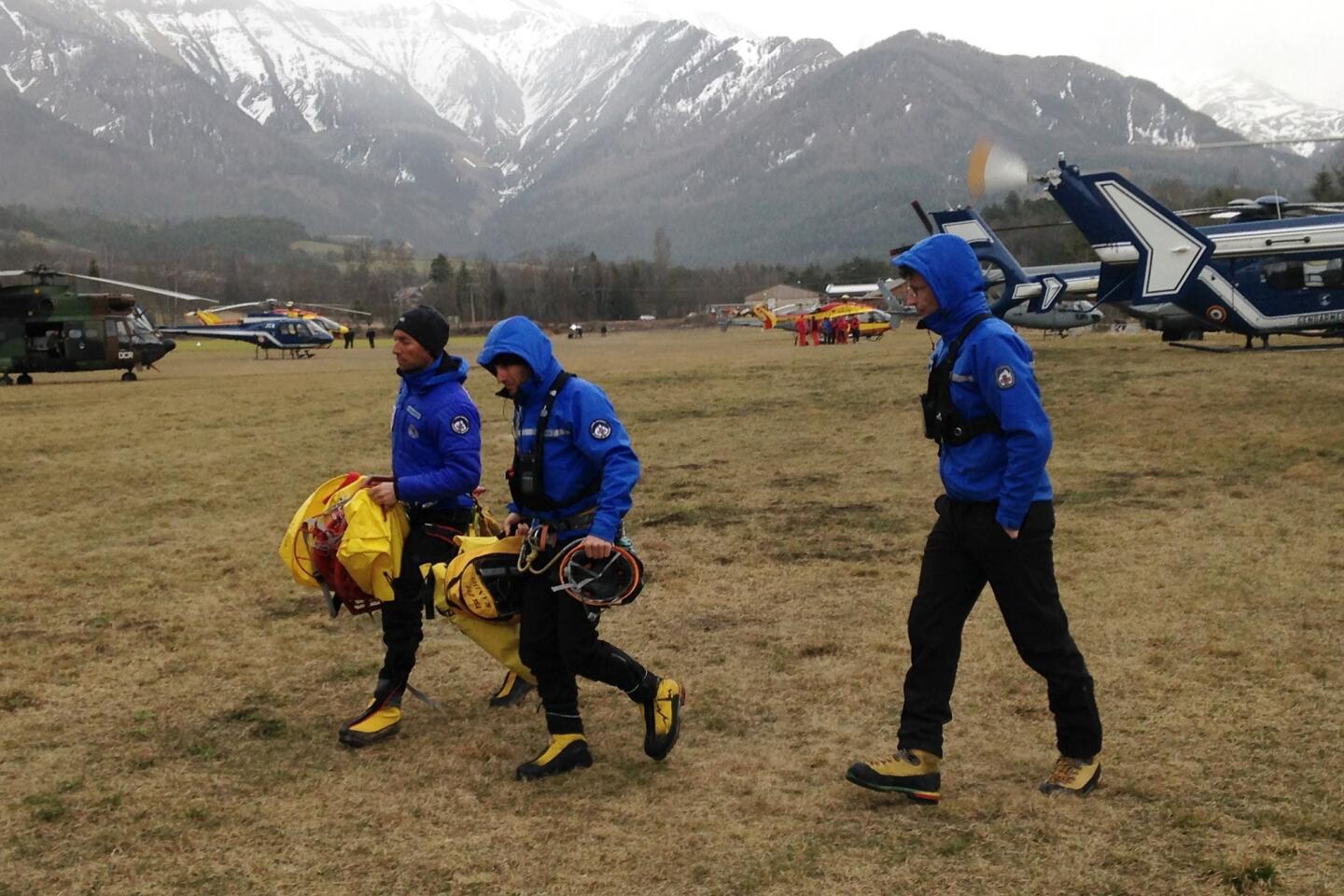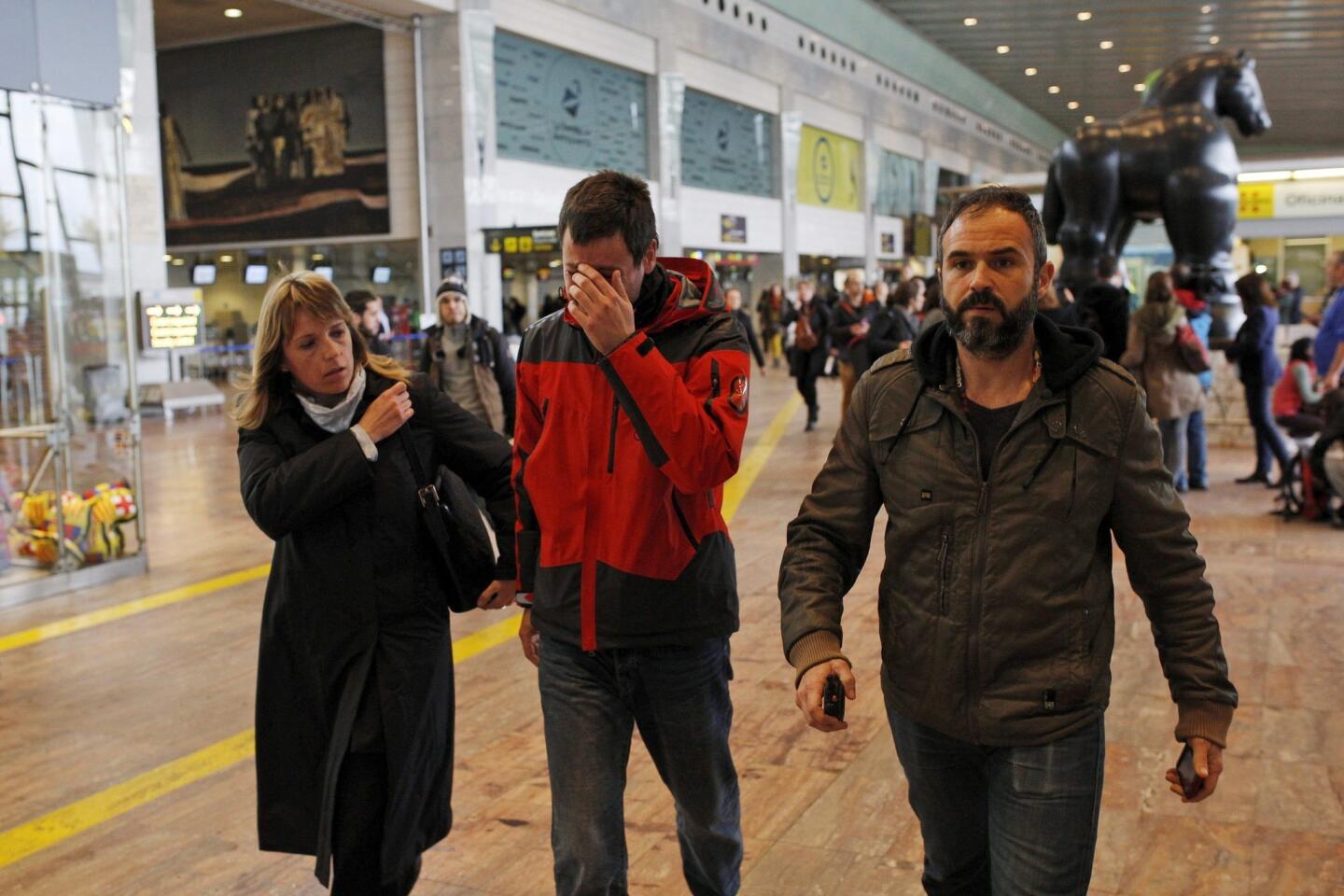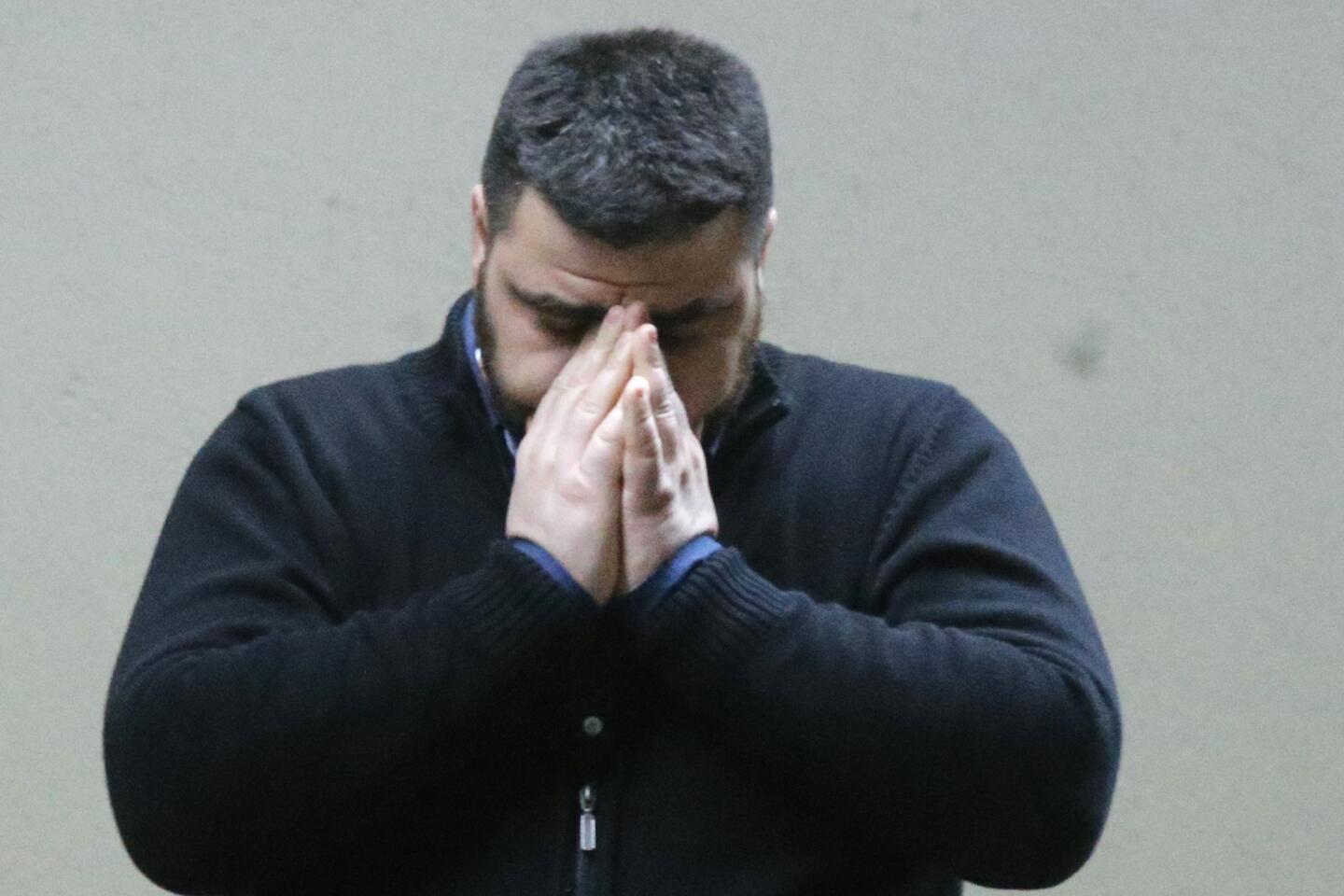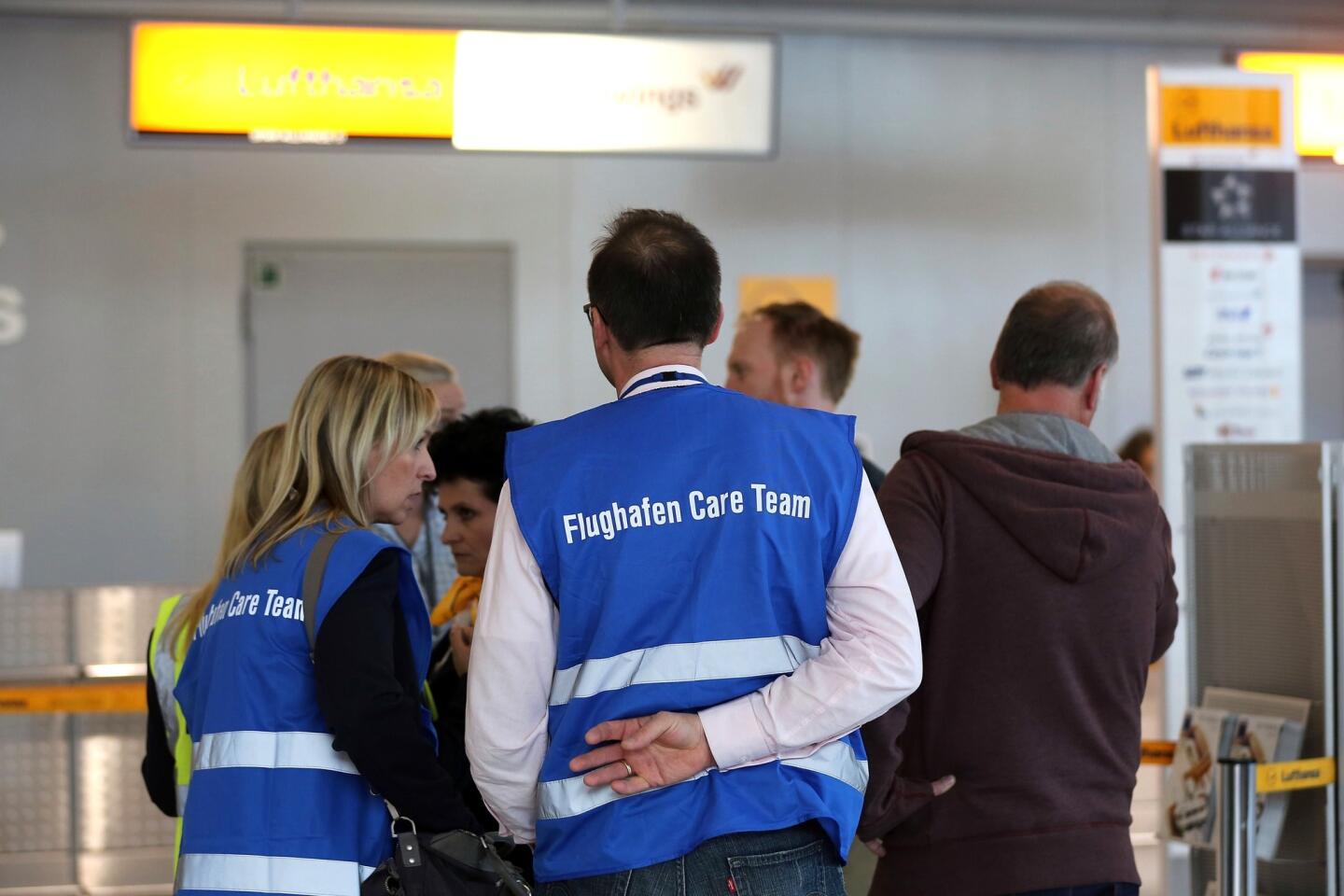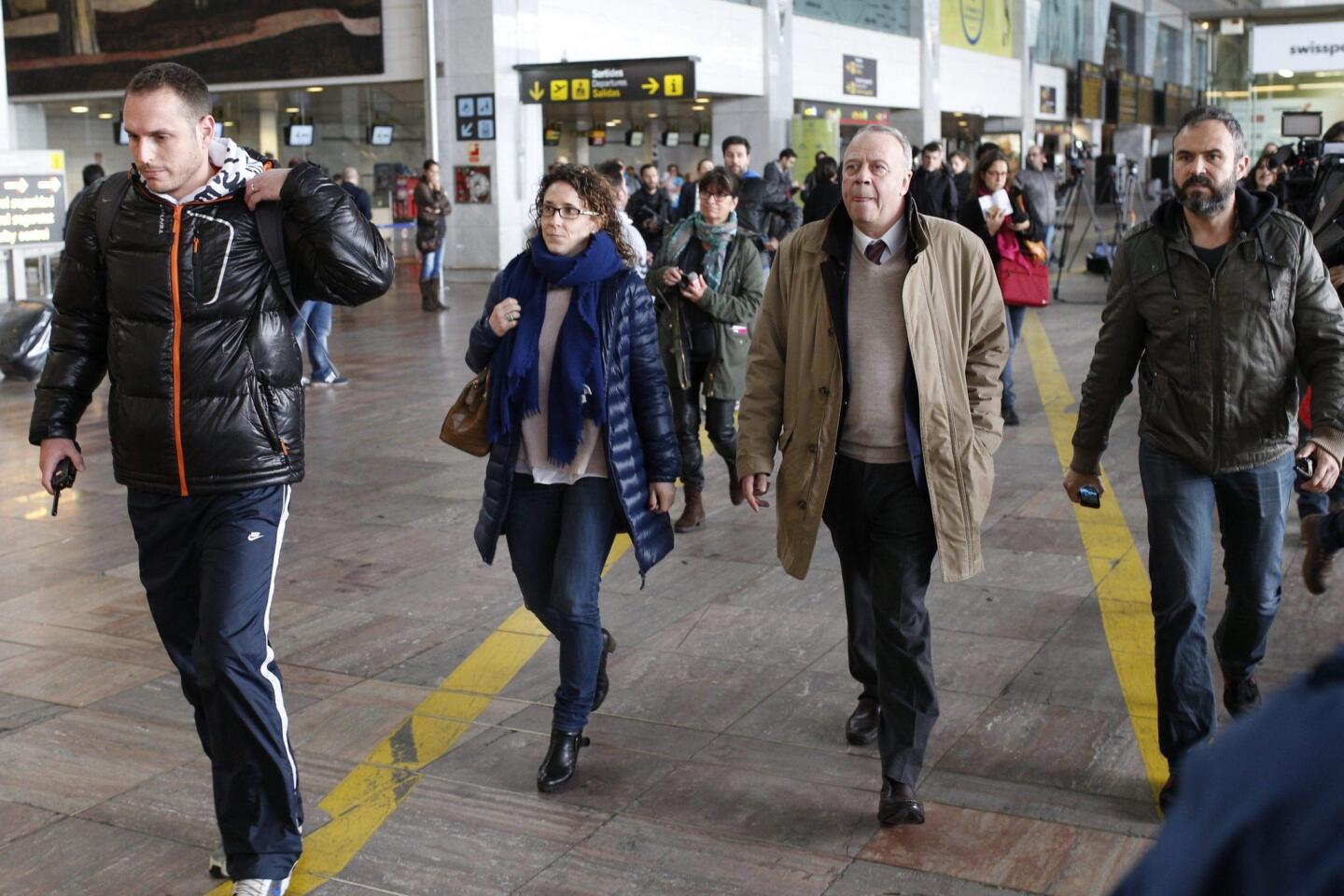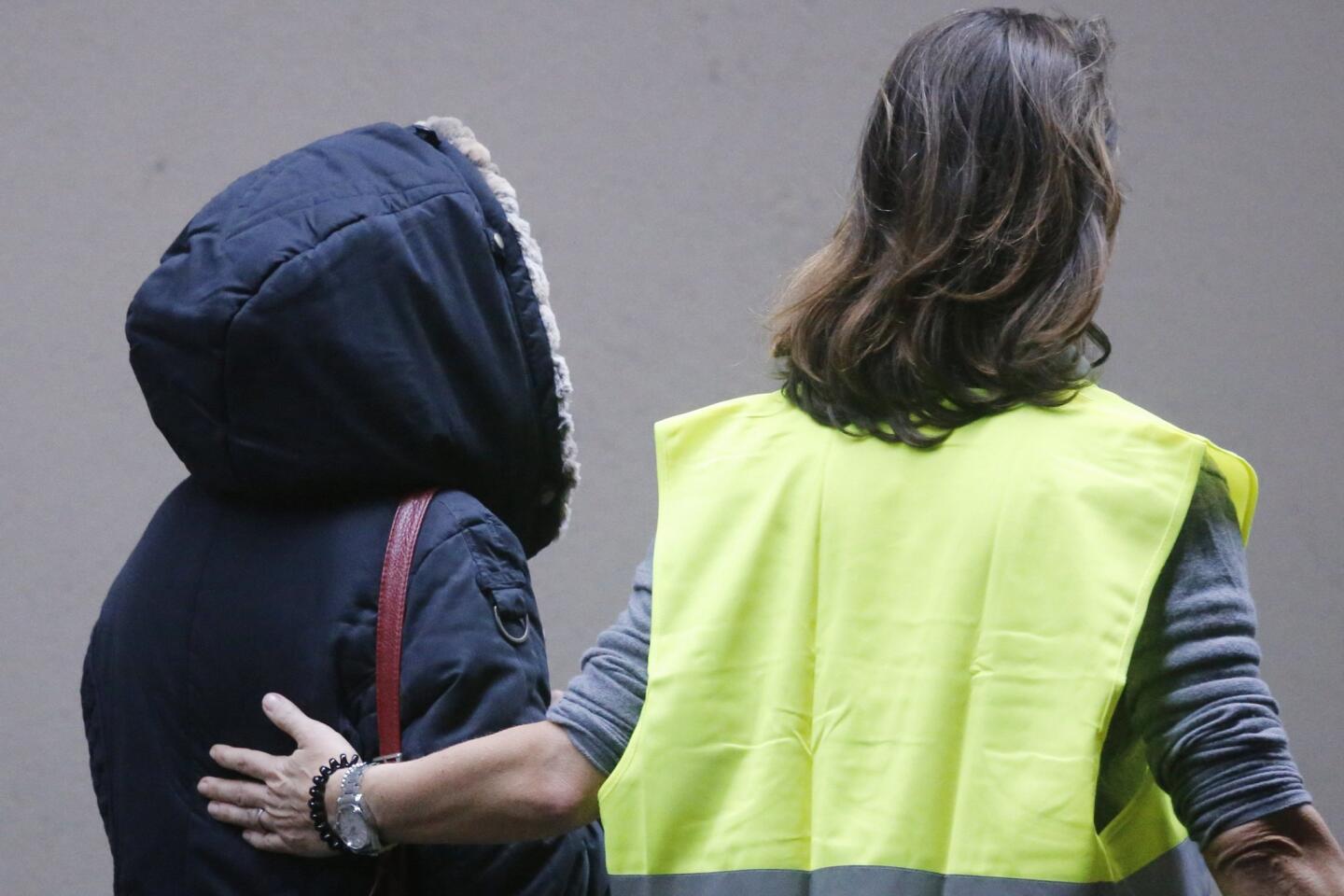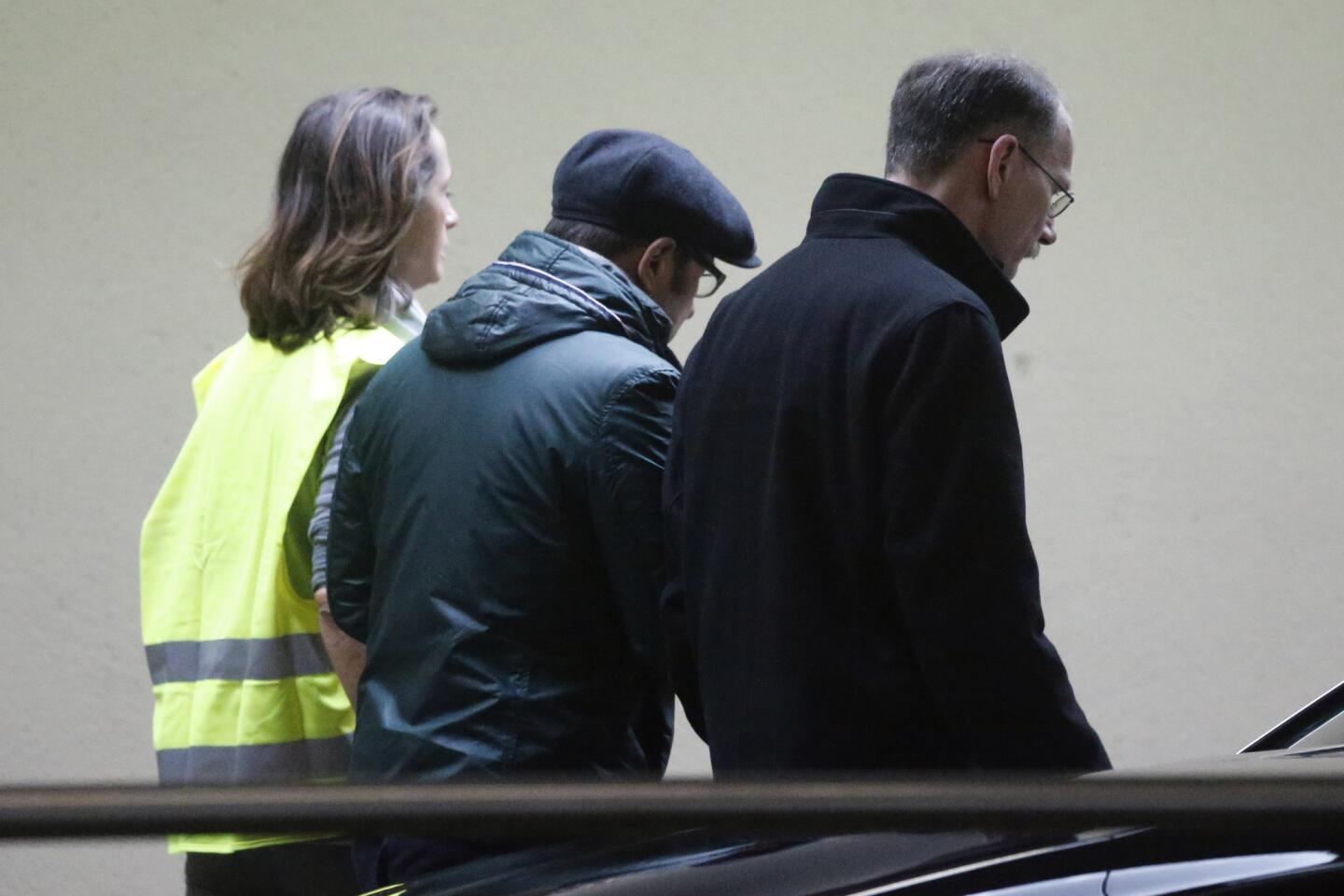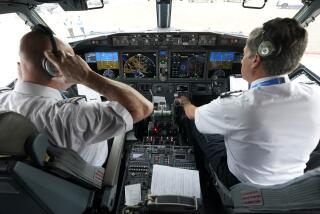Germanwings copilot was treated for ‘suicidal tendencies,’ prosecutors say
Reporting from Berlin — The German copilot thought to have deliberately flown an aircraft into a French mountain, killing all 150 on board, had received treatment for “suicidal tendencies” a few years ago, a spokesman for a German prosecutor said Monday.
Andreas Lubitz, 27, underwent psychotherapy before qualifying to be a pilot, the spokesman for the prosecutor in Duesseldorf said in a statement.
“Several years ago before obtaining his pilot’s license, the copilot was in a long period of psychotherapeutic treatment for noticeable suicidal tendencies,” Ralf Herrenbrueck said in a statement. Since that time, Herrenbrueck said, Lubitz had not shown any signs of wishing to kill himself or any physical illness.
“In the following period, and until recently, further doctor’s visits took place, resulting in sick notes without any suicidal tendencies or feelings of aggression toward others being recorded,” the statement continued.
Herrenbrueck added that investigators had found no motive for Lubitz’s alleged actions.
Also on Monday, Mexico’s aviation officials announced a two-person cockpit rule for all Mexican airlines, news outlets reported.
The rule requires that when the pilot or copilot leaves the cockpit, a flight attendant will have to enter, ensuring that two people are inside and able to open the cockpit door at all times, according to Agence France-Presse and Mexican newspaper El Universal.
Several countries and airlines have adopted such a rule since the Germanwings crash.
Germanwings is a budget carrier owned by the German airline Lufthansa. The parent company, asked about Lubitz’s psychiatric history, said that any medical information is subject to confidentiality laws, the Associated Press reported.
Investigators have said the cockpit flight recorder recovered from the crash site in the French Alps suggested that Lubitz locked captain Patrick Sondenheimer out of the flight deck last Tuesday before putting Germanwings Flight 9525 into descent, sending it smashing into a mountain at about 435 mph and killing all 144 passengers and six crew on board.
Christoph Kumpa, another spokesman for the Duesseldorf investigators, added that there was no suggestion that Lubitz had any problem with his vision, as earlier reported.
Duesseldorf police have set up a new unit, referred to as “Alps,” with about 100 officers responsible for identifying victims of the crash and investigating Lubitz’s background.
Investigators will be working side by side with psychologists as they visit victims’ homes and contact family members to gather genetic material that will be used to identify the body parts being recovered at the site of the crash, officials said.
“We are looking for skin and hair particles,” a Duesseldorf investigator told the newspaper Rheinische Post. “The Federal Criminal Police Office can use these to find genetic codes, which can then be sent to their French colleagues for comparison.”
French workers were building a mile-long road on Monday to the remote crash site to make it easier for recovery workers and investigators to get in and out of the area. Among the key tasks facing them: finding the second “black box,” the flight data recorder.
However, Lufthansa manager Kay Kratky told ARD television channel that it is possible the second black box won’t be found, saying that “it could be that the damage was so serious that it is sending no signal.”
The other black box, the cockpit voice recorder, was quickly found and led to the discovery that Lubitz had locked the captain out of the cockpit. Searchers have found the outer casing of the flight data recorder, but not the contents.
Special correspondent Willsher reported from Paris; Hassan, also a special correspondent, reported from Berlin.
ALSO:
Op-Ed: No algorithm can stop a pilot bent on killing himself
Town grieves for its native son: Germanwings copilot Andreas Lubitz
Details of Germanwings copilot’s life, death emerge; friends are shocked
More to Read
Sign up for Essential California
The most important California stories and recommendations in your inbox every morning.
You may occasionally receive promotional content from the Los Angeles Times.
